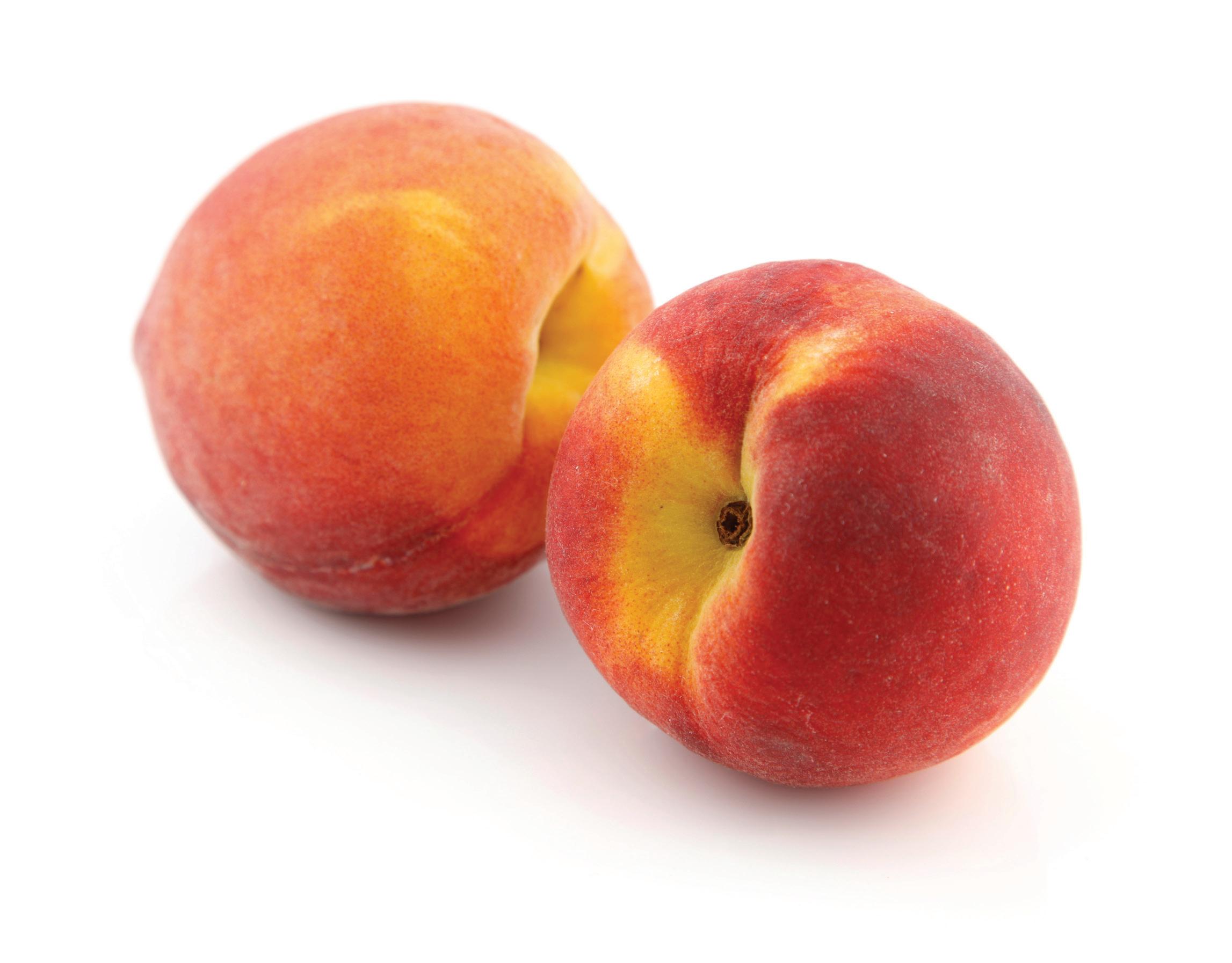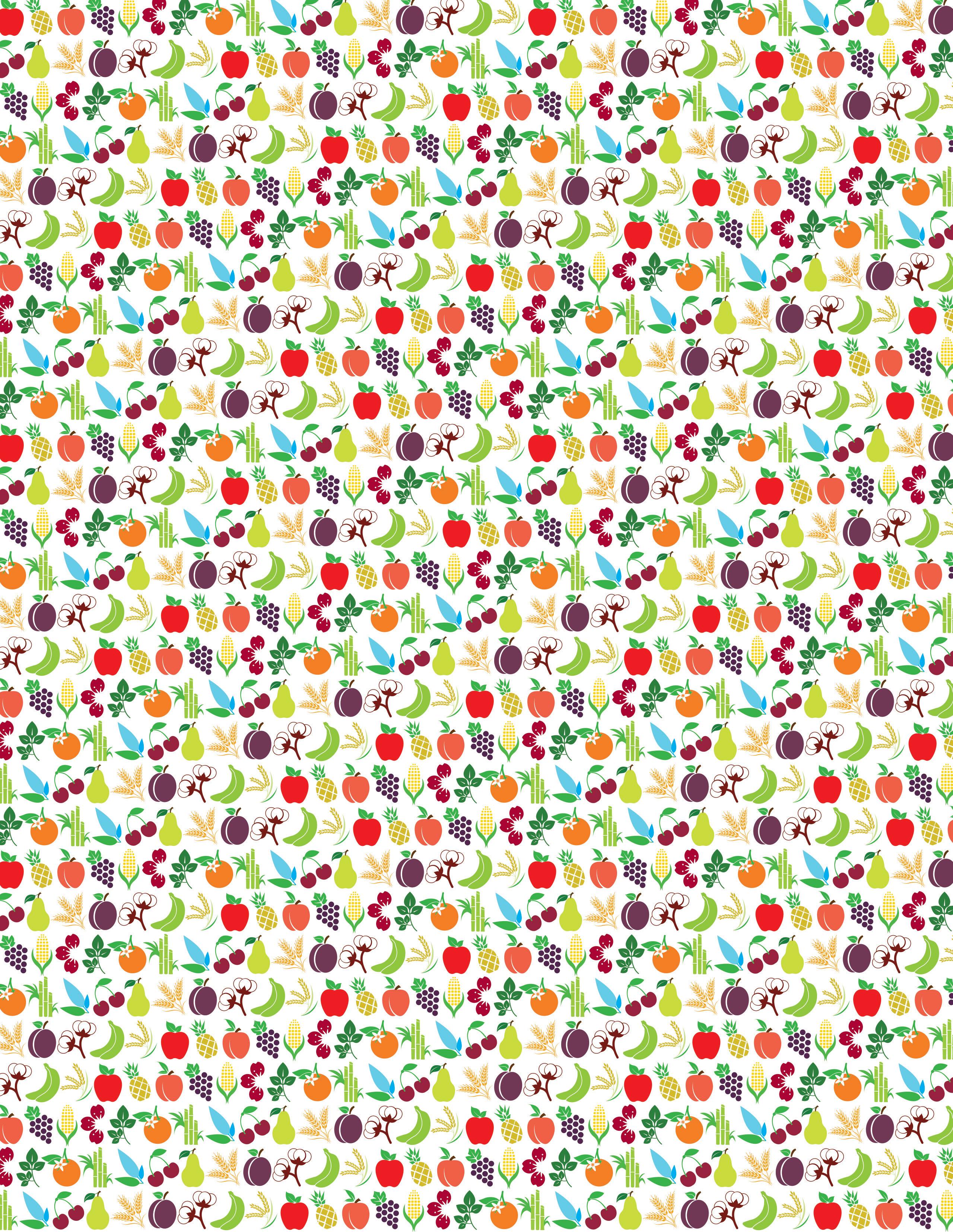

Game-Changing Innovation and Leadership
For more than 50 years, Valent BioSciences has successfully developed and marketed plant growth regulators (PGRs) that provide a wide range of customer benefits. We are the global leader in innovation and technical expertise and the first company to develop and commercialize products in the five major classes of plant hormones.
Valent BioSciences also has a successful track record of producing revolutionary new PGRs that create market opportunities and tremendous value for our customers.
As the longtime industry leader, the Biorational Crop Enhancement team is proud to introduce the new We Change the Game ™ campaign featuring the many different crops that have benefited from our game-changing innovation. This campaign emphasizes our heritage of agricultural advancements and industry leadership, highlighting how our products raise the bar for a variety of crops in the agricultural industry.
All of this success would not be possible without the support of our many customers, employees throughout the various Sumitomo Chemical companies, and academic and industry partners around the world. We thank all of you for your invaluable contributions.
The We Change the Game campaign is another differentiator that reinforces how Valent BioSciences continues to change the game each and every day—for growers, markets, and products.
Within this publication, you’ll find informative stories about Valent BioSciences products that changed markets and farming practices:
• ProGibb ® (called Berelex ® in some regions) revolutionized the grape industry by effectively stretching, thinning, and sizing table grapes
• Promalin,® ReTain,® and MaxCel ® enhanced the ever-evolving apple industry by creating more consistent and more marketable apples for some of the most highly sought-after varieties
• ProVide ® (called Regulex ® outside the Americas) was the first effective product for preventing russeting and improving fruit finish on apples and improving fruit set on pears
• RyzUp ® delays ripening in bananas, enabling growers to more effectively deliver fruit to its final destination
• ProTone ® (called Excelero™ in some regions) answered the market need for consistently colored red table grapes without additional residues
• PinCor® prevents naturally differentiated flowering (NDF) caused by stress, giving growers more control over and synchronizing flowering, fruiting, and harvest of pineapples
• InGrain™ is a revolutionary product that increases rice yield by enhancing grain filling and improves milling quality
• Accede ® was the first solution for thinning stone fruit, as well as thinning apples during the late thinning window
ProGibb® Leads the Way in Maximizing Crop Production
CROPS
Ideal for application on a variety of crops: table grapes, citrus, temperate fruit crops, tropical crops, and vegetable crops.
BENEFITS
Offered in several formulations ranging from soluble granules to low-volatility liquids, ProGibb® is applied to a wide variety of crops with more than 55 uses. Globally, ProGibb and Berelex®:
• Improve cluster stretching, cluster thinning, and berry sizing on table grapes
• Increase fruit set, reduce fruit drop, and delay rind creasing in citrus
ACTIVE INGREDIENTS
ProGibb contains the plant growth regulator (PGR) gibberellic acid (GA3), which increases plant growth, fruit set, and fruit size, and stimulates seed germination.
How ProGibb Changed the Game
In the mid-1950s, research began to emerge surrounding gibberellins, a class of naturally occurring plant hormones that were the forerunners of many of today’s plant growth regulator products. Of particular interest was gibberellic acid (GA3), a plant hormone that controls cell division and growth and is present in a variety of crops. At the time, no one realized that GA3 would fundamentally and forever change commercial fruit production in major growing areas around the world.
Before GA3, table grape varieties boasted large berries, but they also produced seeds that were bothersome and often bitter tasting. Seedless table grapes became the objective of many breeding programs, but in grapes, GA3 is produced by the seed. As a result, all seedless varieties produced small berries due to lack of natural GA3 production.
The proactive application of GA3 was revolutionary for this unmet need. GA3 was first proactively applied on the main variety in raisin production, Thomson Seedless, which has small, seedless berries that are ideal for raisins. With foliar applications of GA3, Thomson Seedless was transformed from a small berry-producing variety to the leading table grape variety in the world. Today, the use of GA3 in seedless table grape production is standard practice.
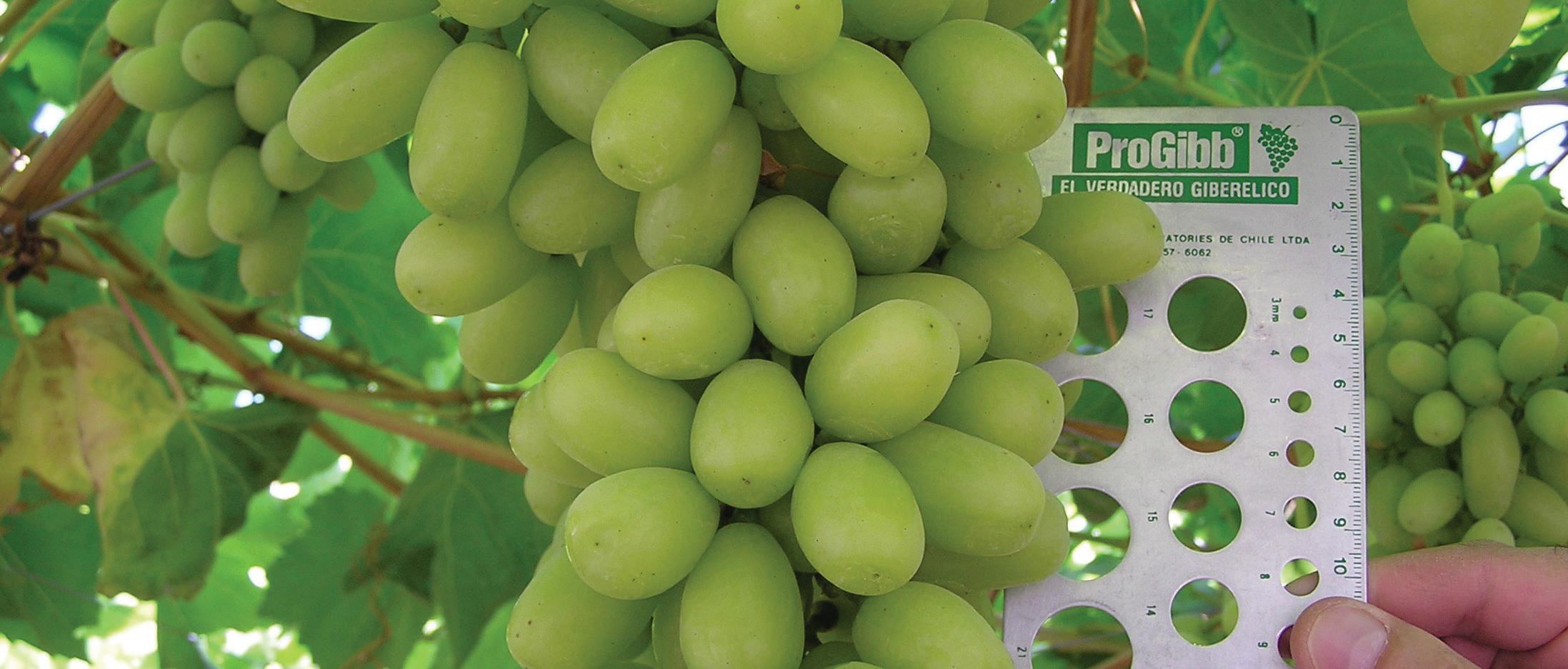
PERFECTING THE SCIENCE
Despite its enormous impact on seedless grapes, the cost of manufacturing the product was prohibitive. At the time, GA3 was not easy to produce and was expensive for growers. Although a
beneficial return on investment was demonstrable even with the earliest GA3 products, the adoption curve lagged. It was at that point that the Agricultural Products Division of Abbott Laboratories (now known as Valent BioSciences) assumed its leadership position and changed the game not only in GA3 production, but for PGRs as a whole.
After a decade of tireless research, testing, and refinements, Valent BioSciences was successful in dramatically reducing the cost of GA3 through expert fermentation techniques and strain selection. This meant that for the first time, GA3 was readily accessible to growers via ProGibb, also known as Berelex in some regions. The consequent lower cost resulted not only in widespread commercial adoption of GA3, but also in sparking exciting new research into potential uses of ProGibb on other crops.
CITRUS AND OTHER CROPS
As the seedless table grape industry took off, the use of ProGibb on citrus became the next focal point for agricultural researchers. Research into the effects of GA3 on citrus began to show dramatic results. It was found that applying ProGibb to citrus at color break kept the rind in a juvenile state. While the fruit continued to grow and mature on the inside, the effect on the rind kept it from ripening, giving growers the ability
to delay harvest for two to three months in ProGibb-treated blocks while untreated fruit could be harvested normally. The advantages of this change were revolutionary to the citrus industry.
Rather than a typical two-to-three-month harvest window, citrus growers could now extend their harvest to last five or six months. On a grand scale, this meant that a year-round supply of high-quality, affordable oranges was suddenly available to meet global consumer demand. In addition, while a typical citrus grower might have needed to employ several hundred seasonal workers to harvest the crop at peak quality in the past, it was now possible to hire fewer workers for a longer period by applying ProGibb.
Today, as in table grape production, the use of GA3 is the standard in every major citrus-producing country in the world. Since the introduction of ProGibb, Valent BioSciences has added more than 55 uses to the label, making this plant growth regulator exceptional in its ability to be used across a multitude of crops. Despite the market entry of other GA3 products, ProGibb’s many high-quality formulations enable it to realize growing sales around the world year after year and remain the world’s top-selling GA3 brand.
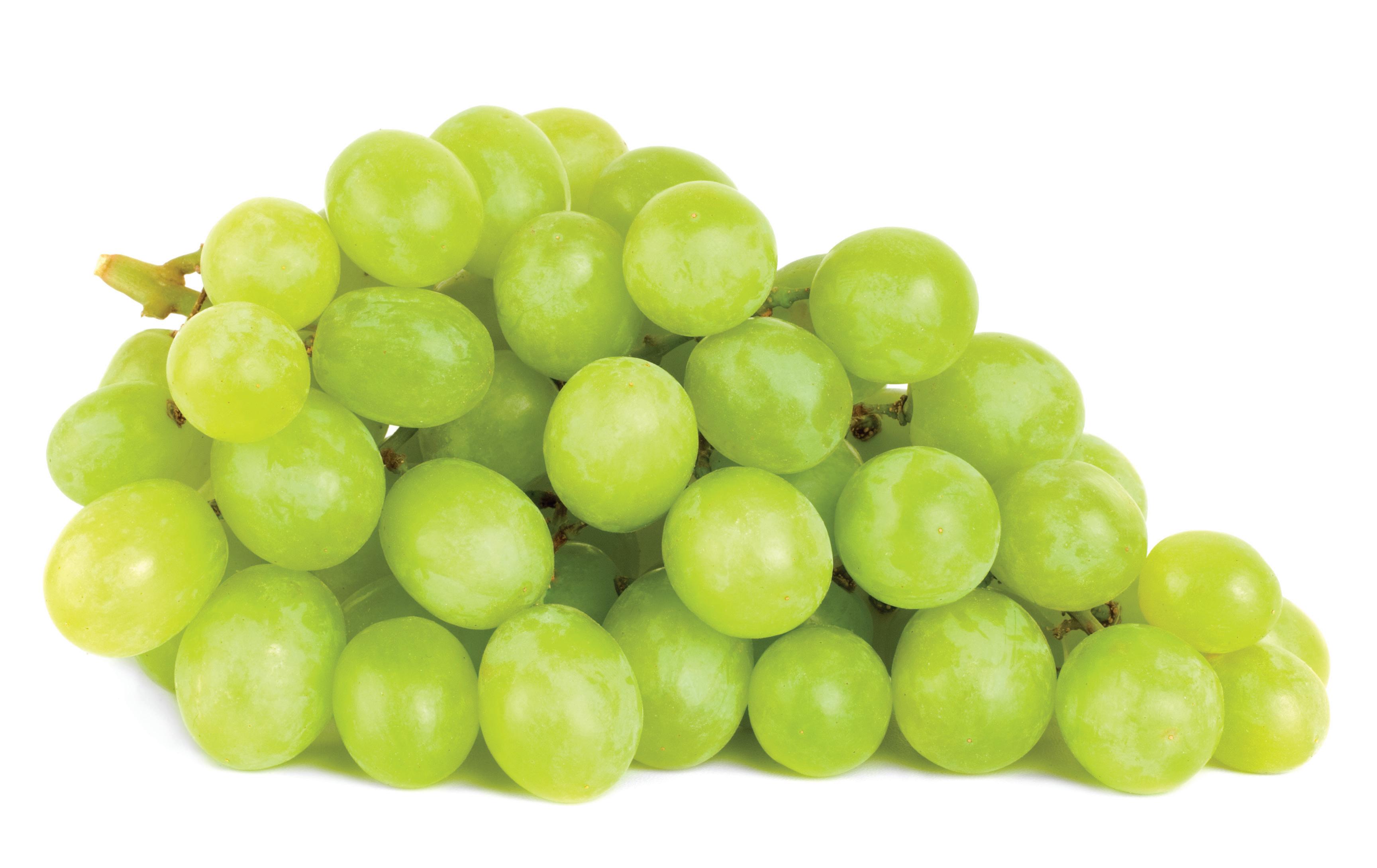
Promalin® Helps Shape Success for Apple Growers
CROPS
Ideal for application on apples.
BENEFITS
Offered in a stable, liquid formulation that is easy to measure and apply in the field, Promalin ® offers numerous benefits for apples, including:
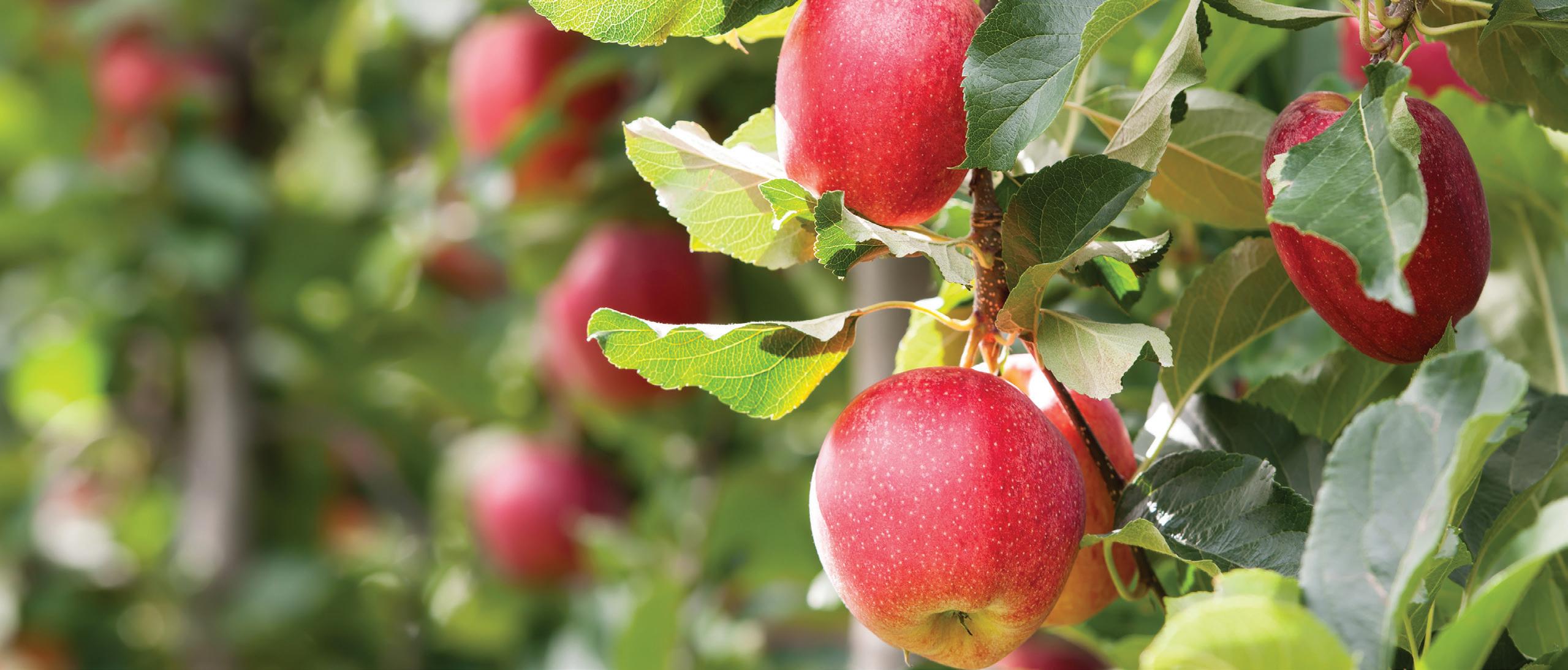
• Improved fruit shape (typiness) and size of varieties, such as Red Delicious and Gala
• Enhanced fruit finish (russet control)
• Increased fruit set after a frost event
• Increased branching in nursery trees and newly planted orchards
ACTIVE INGREDIENTS
Promalin is a mixture of two plant growth regulators: gibberellins A4 and A7 (GA4+GA7), which cause cell enlargement and elongation, and 6-benzyladenine (6-BA), which promotes cell division and reduces the incidence of russeting and cracking by improving cell wall elasticity and cell elongation.
How Promalin Changed the Game
In the 1960s, the introduction of GA3 and ProGibb ® ushered in a revolutionary new era of commercial fruit production. The impact and success of ProGibb in both the grape and citrus industries spawned exciting new opportunities and production possibilities for plant growth regulators (PGRs) in general and fruit growers specifically.
By the early 1970s, the Agricultural Products Division of Abbott Laboratories (now Valent BioSciences) was firmly established as the global leader in PGR development and manufacturing. The company’s dedication to GA3 strain and fermentation process improvements yielded higher-quality and more affordable GA3 than was ever before possible. The transformation was so dramatic that many other GA3 manufacturers elected to exit the market entirely, solidifying the company’s position as the industry leader and innovator.
At that time, the organization made the strategic and farsighted decision to leverage its newfound expertise and its proprietary, pharmaceutical-grade manufacturing process by identifying new ways it could help growers meet production challenges. While more than 100 different gibberellins were identified by researchers, only three of them (GA3, GA4, and GA7) showed commercial promise at the time.
ENHANCING THE TOP VARIETY
At the top of the list for game-changing opportunities was the unmet need facing the apple industry, particularly production of the world’s
top-selling variety, Red Delicious, which dominated global apple production in the mid-1970s. These apples are characterized by “typiness,” the elongated shape and prominent calyx lobes for which the variety is known. In Red Delicious apples, typiness is the key quality indicator. Consumer preferences dictate that the more “typy” the Red Delicious, the better.
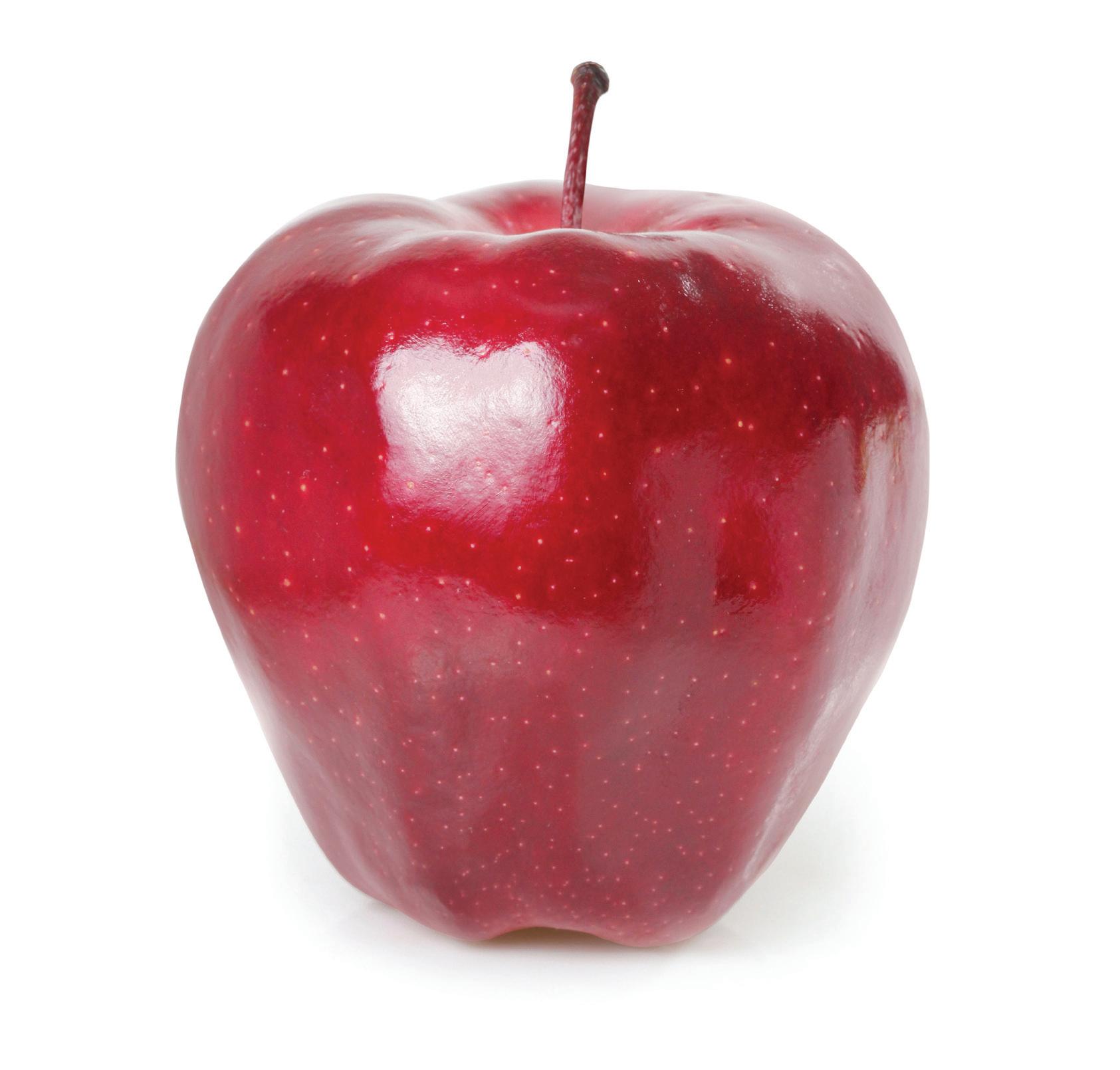
The challenge with Red Delicious was that without cool nights during bloom, typiness (and fruit grade) would lag. Not only did this challenge affect apple production when atypical climatic conditions occurred, but it compromised crop quality in major apple-growing regions such as Asia, South Africa, and Australia, where cold winters and cool nights during bloom were less frequent.
When it was confirmed that GA4+GA7 and the cytokinin 6-Benzyladenine (6-BA) each had a positive effect on size and typiness, and that the effect was more pronounced when the two compounds were used in combination, developing a new PGR product for Red Delicious producers became a top priority.
REGISTRATION AND ADDITIONAL BENEFITS
The first registration for Promalin was granted in the U.S. in 1978, and in the ensuing years, Promalin became widely adopted around the world, changing the game for apple growers in every major apple-producing region.
Developed initially to promote typiness on Red Delicious apples, Promalin was found to provide additional benefits such as russet control, increased fruit set, fruit size, and branching in all apple varieties that proved to be significant for a grower’s bottom line. Multi-year studies confirmed that the product increased apple yield by 6% on average and increased packout by shifting size categories by one-half to one size, which translated into incremental gross income for growers.
Most recently, Valent BioSciences confirmed that additional size benefits result when Promalin is used in a program with MaxCel ® on hard-to-size cultivars, further maximizing profitability for growers.
Valent BioSciences continues to work diligently to promote and strengthen the Promalin brand. Since the first registration, the company has developed and registered Promalin around the world, enabling growers in all major apple-growing regions to benefit from this game-changing technology and establishing Promalin as a global powerhouse brand.
ProVide® Delivers the Ultimate Russet Control Solution
CROPS
Ideal for application on apples and pears.
BENEFITS
Available for use in both conventional and organic production, the benefits of ProVide ® include:
• Russet prevention and fruit cracking suppression – Improved fruit finish
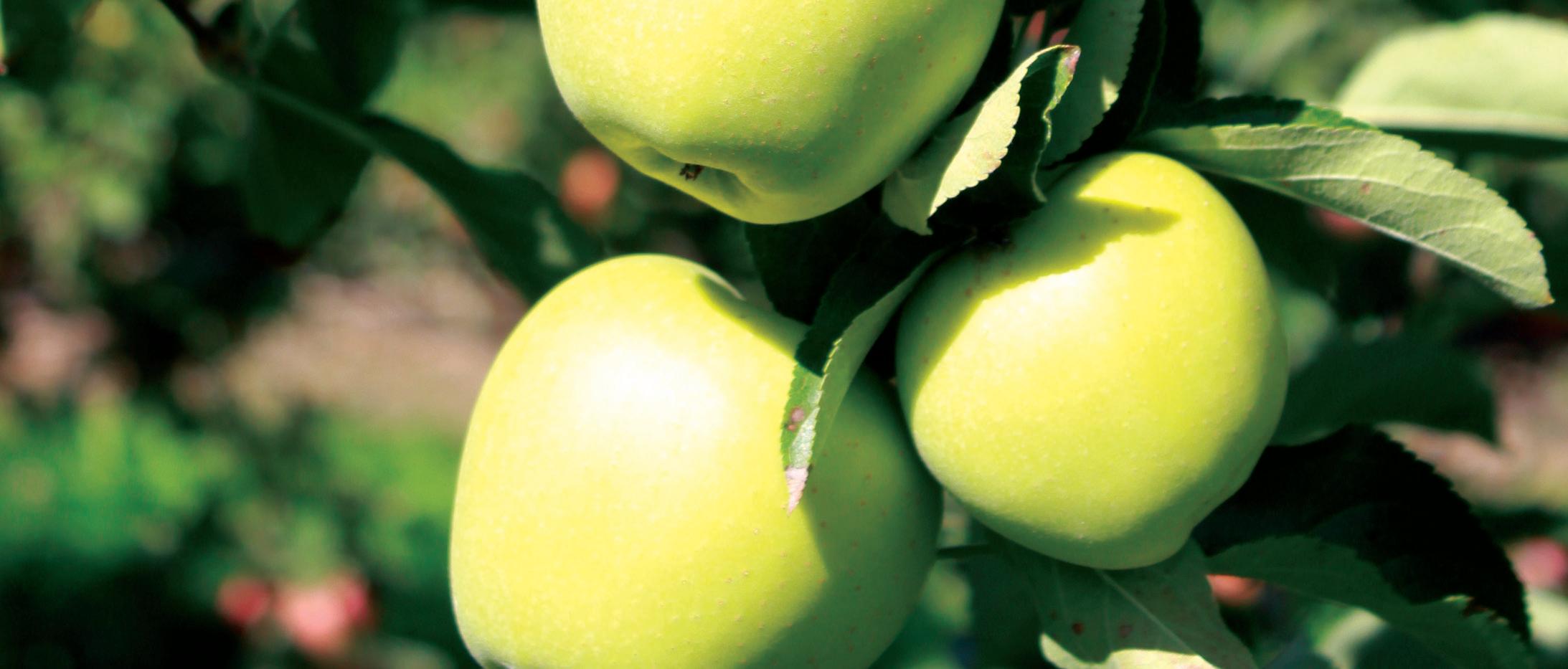
– Improved packout
ACTIVE INGREDIENTS
The active ingredients in ProVide and Regulex® 10SG are a mixture of the gibberellins A4 and A7 (GA4+7). Gibberellins are plant hormones commercially known for reducing the incidence of russeting and cracking by improving cell wall elasticity and cell elongation.
How ProVide Changed the Game
ProVide and Regulex were the first pure GA4+7 products for russet control to be commercialized in the U.S. and Europe. ProVide was first introduced in the U.S. in 1987 as a liquid formulation by the Agricultural Products Division of Abbott Laboratories (now Valent BioSciences). In Europe, the product was launched under the brand name Regulex
Russeting is an important peel defect in many apple varieties. It is a physiological disorder of the fruit skin or a peel defect that results from microcracks in the cuticle and the subsequent formation of wounds in the periderm or skin of the apple.
Russeted fruit is subject to reduced market value. From a fresh-market perspective, it has an undesirable appearance. From a post-harvest perspective, it may show mild to severe shrivel due to moisture loss during storage. Apple varieties differ in their susceptibility to russeting, and fruit in early stages of development are more susceptible than those in later stages. Golden Delicious and Gala are examples of varieties that are prone to developing russeting.
Early-season applications of ProVide help reduce russeting and improve overall fruit finish by increasing the epidermal cell density in the skin. ProVide and Regulex help control russeting caused by factors such as stress conditions during early fruit growth and environmental conditions such as extended periods of high humidity and surface wetness and cool weather during spring.
GAME-CHANGING SOLUTION
ProVide and Regulex were launched as a complement to Promalin ® in markets that experience significant russeting issues. These products were gamechanging for this unmet need. Their use increased packout substantially, from 30-40% to 70-80% packout, providing increased marketability and profitability for growers.
In South Africa, for instance, environmental conditions in the country are particularly conducive to significant russet development on Golden Delicious. Regulex is the ideal product for their needs, and quickly became a standard application for russet control. In fact, ProVide and Regulex have become a staple around the world for apple growers.
SUPERIOR FORMULATION QUALITY
While the first formulation was a liquid, a soluble granule formulation was developed using technology created for the ProGibb ® 40% formulation. The
formulations team at Valent BioSciences was able to translate this technology to introduce ProVide and Regulex as a 10-percent soluble granule.
The granule formulation is organic, easy to use, and water-soluble, allowing it to dissolve instantly. ProVide was also developed so plants can uptake the product immediately. The granule formulation is produced by fermentation and provides increased efficiency and decreased waste from manufacturing to application. Because of its stable form, it has a longer shelf life compared to liquid formulations. All of these features demonstrate the superior quality of the granule formulation.
As markets evolve, Valent BioSciences continues to solve unmet needs utilizing ProVide and Regulex for new varieties, uses, and crops, such as fruit set use on pears. It’s no surprise that ProVide and Regulex have become an integral part of a standard application program and that Valent BioSciences continues to explore new opportunities for this game-changing product.
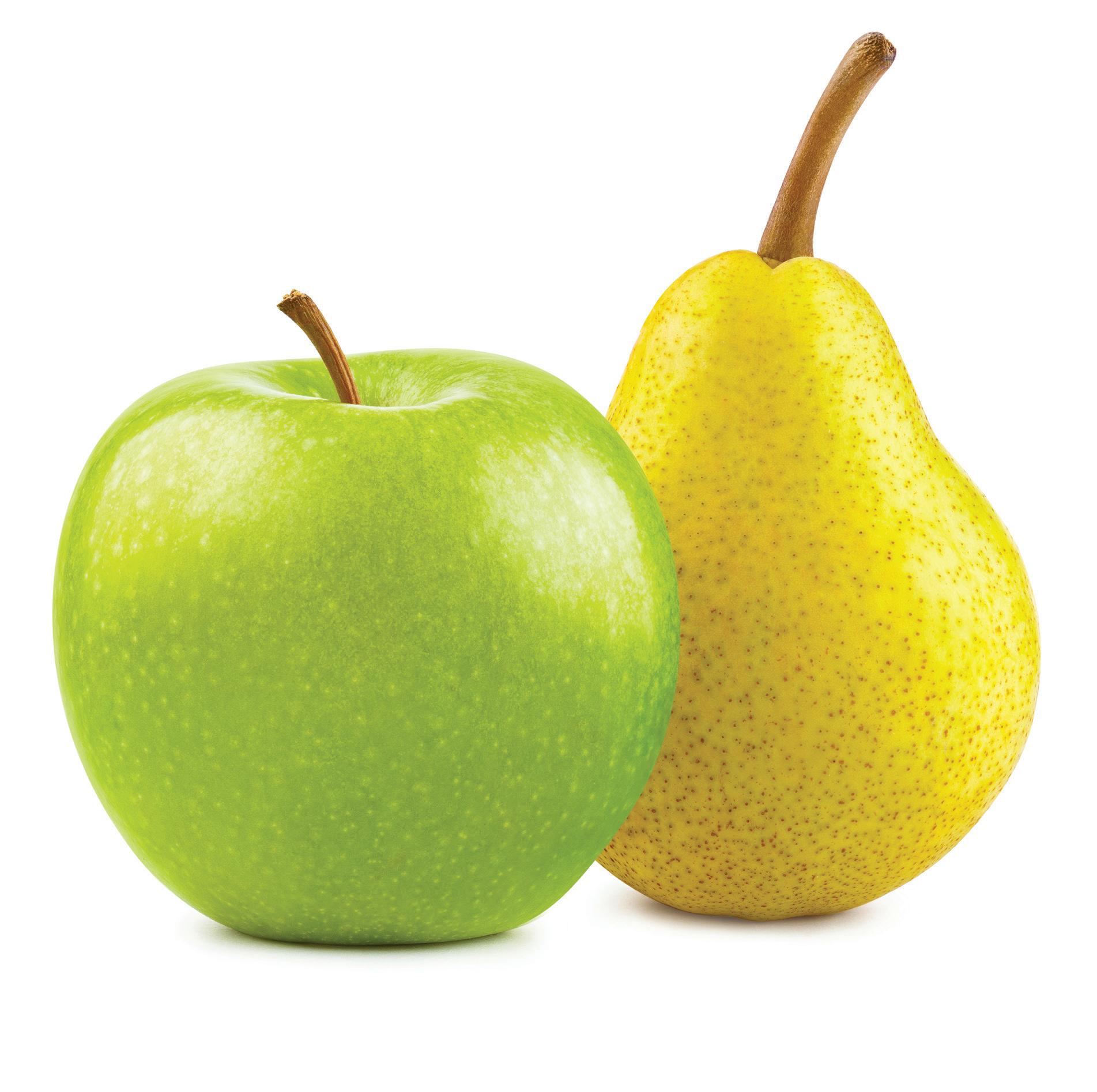
ReTain® Revolutionizes the Apple Industry
CROPS
Ideal for application on apples, pears, stone fruit, almonds, and walnuts.
BENEFITS
Formulated as a water-soluble powder, ReTain®:
• Inhibits the production of ethylene
• Delays senescence of floral organs in apples, pears, cherries, almonds, and pecans
• Reduces pistillate flower abortion in walnuts
• Reduces abscission of flowers and young fruit in pears
ACTIVE INGREDIENTS
Aminoethoxyvinylglycine (AVG) is a naturally occurring fermentation product that temporarily inhibits the production of ethylene, a plant hormone that affects flower senescence, fruit maturation, ripening, drop, and other processes, giving growers the ability to dial in desired responses. As a result, AVG offers tremendous value for growers of commercial tree fruit and other crops.
How ReTain Changed the Game
Every so often, a product so revolutionary is developed that it redefines an industry. That’s what ReTain did for the apple industry, as it significantly changed the way apples, tree fruits, and nuts are produced and harvested around the world.
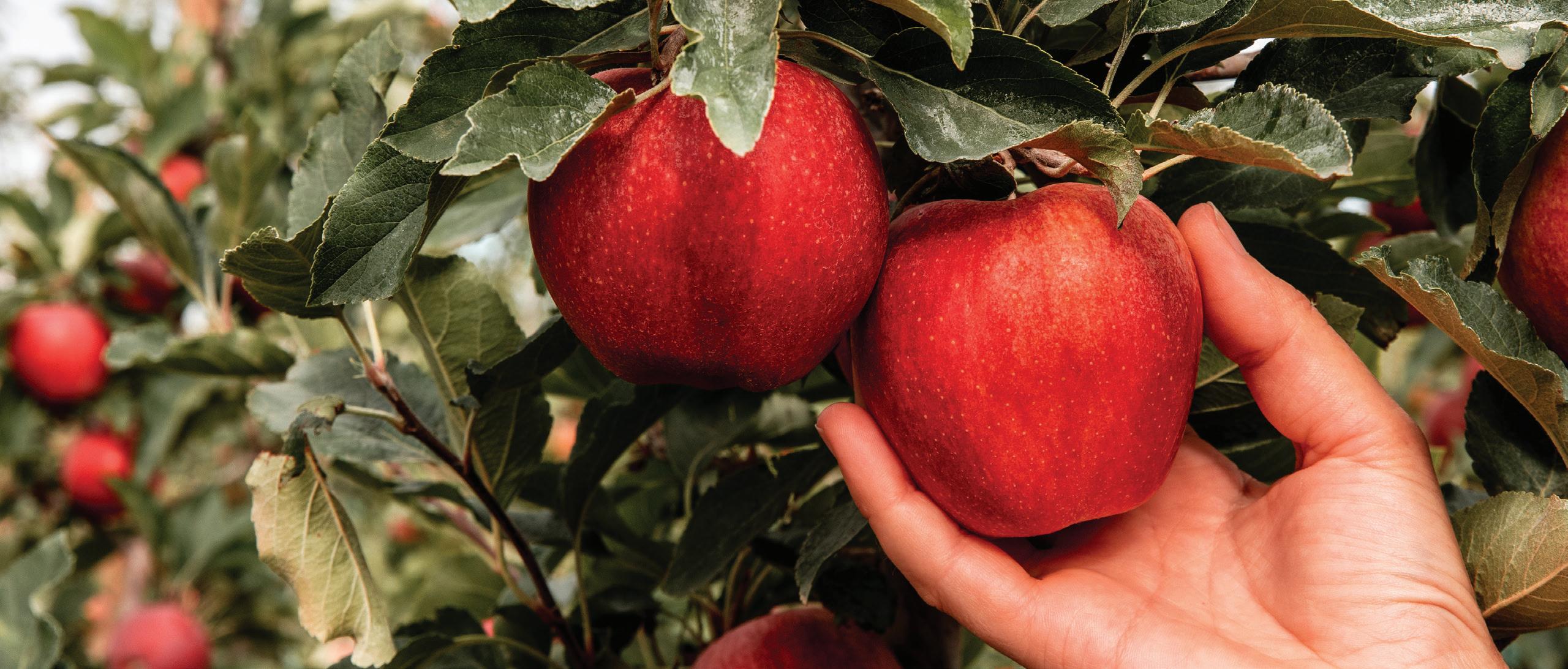
Scientists discovered and patented AVG in the 1970s. Given the critical role of ethylene in plant biology, the ability to inhibit ethylene production with AVG was immediately recognized as having the potential for agricultural applications. However, scientists could not commercialize AVG due to its high production costs.
When daminozide, which had been commonly used to delay apple maturation, was discontinued, the Agricultural Products Division of Abbott Laboratories (now Valent BioSciences) saw an opportunity to develop AVG for apples. During the 1990s, Abbott was able to confirm field efficacy of AVG on apples and leverage its extensive fermentation capabilities to develop a commercial formulation and improve manufacturing. ReTain was registered by the U.S. EPA in 1997 and has since become the industry standard for managing harvest and optimizing apple quality and yield.
MANAGING APPLE HARVEST
Today, ReTain is the premier harvest management tool available for apples. It slows the maturation process, extending harvest time and enabling growers to harvest with fewer pickers while the fruit matures to optimal size, color, and condition. This ensures more fruit have optimal quality going into and coming out of storage.
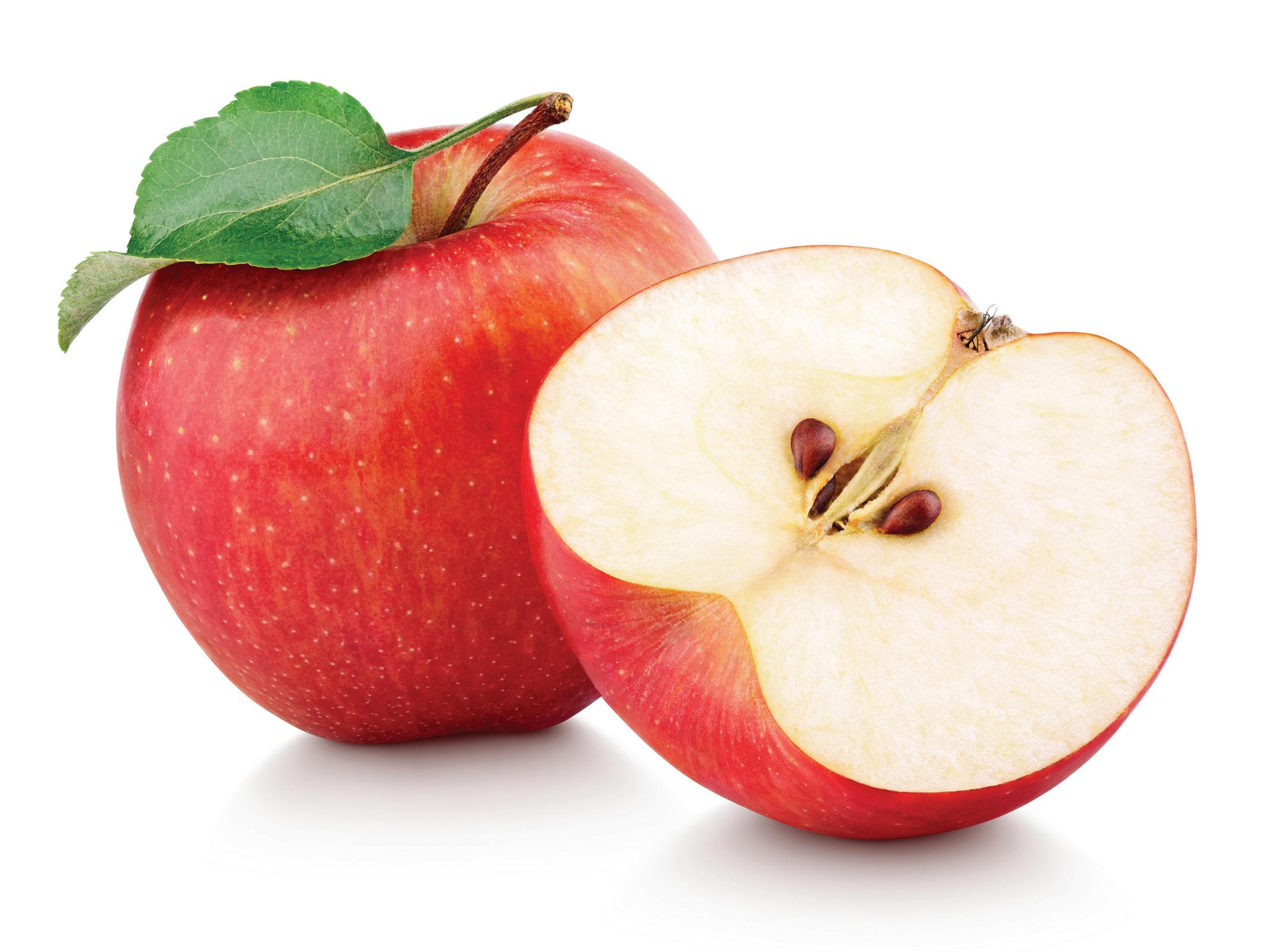
Applying ReTain before the apple or pear harvest provides maximum protection against accelerated fruit drop. This is especially valuable when unfavorable weather such as high winds, excessive heat, or drought occurs prior to harvest. Delaying drop helps apples reach their maximum size. Additionally, ReTain reduces watercore and stem bowl cracking, ensuring improved packout and fruit quality.
EXPLORING NEW OPPORTUNITIES
Valent BioSciences has worked diligently to expand the commercial uses of AVG to meet the needs of farmers around the world. New applications were found on stone fruit, almonds, walnuts, cucurbits, and pineapples (PinCor®).
Similar to apples, ReTain applied to stone fruit a few weeks prior to harvest can improve harvest management by allowing peaches and nectarines to develop excellent flavor without becoming soft and dropping prematurely. Delaying drop also allows stone fruit to continue to increase in size. In varieties prone to soft tip, ReTain applied prior to harvest can help reduce this condition.
During walnut bloom, ethylene causes pistillate flower abscission (PFA). ReTain blocks ethylene production and reduces PFA, thus increasing fruit set. ReTain consistently increases yield in walnut orchards that suffer from low nut set due to PFA.
As with all of its products, Valent BioSciences continues to explore new opportunities for ReTain to address the unmet needs of growers, changing the game for crops around the world.
RyzUp® Is the Popular Choice for Bananas and Pineapples
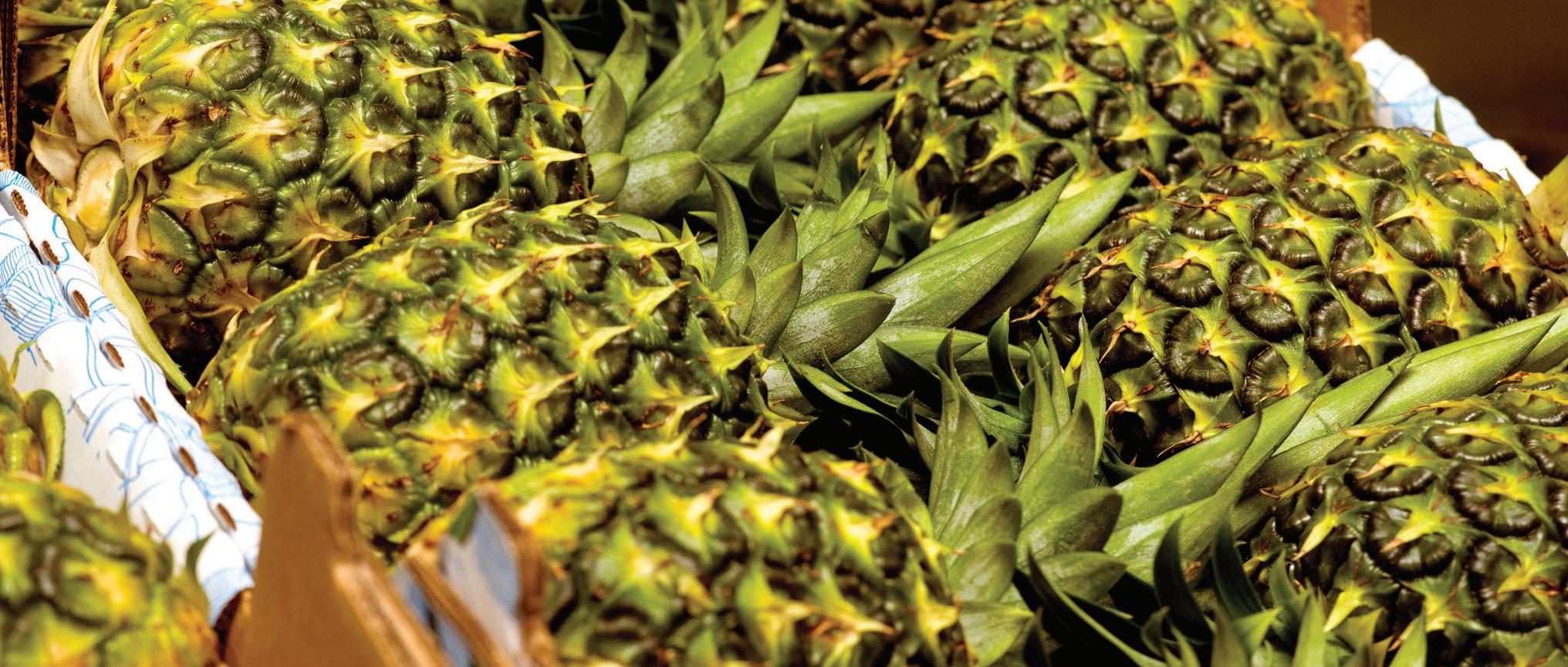
CROPS
Ideal for application on bananas and pineapples.
BENEFITS
Offered in a highly concentrated and ultrasoluble patented formulation, RyzUp® 40SG:
• Extends post-harvest green life in bananas
• Overcomes stress caused by adverse conditions in bananas
• Shortens time to harvest in new banana plantations
• Increases fruit size and decreases translucency in pineapples
ACTIVE INGREDIENTS
RyzUp contains the plant growth regulator gibberellic acid (GA3), which plays a role in many plant processes, including fruit growth and development, ripening, and stress responses.
How RyzUp Changed the Game
After they are harvested, bananas undergo a three-to-six-week journey from the field to supermarkets and, ultimately, residences, before they are consumed. To successfully make this long journey, bananas are exported while they’re still green to extend their postharvest life and ripen shortly before arriving at the supermarket.
Bananas must stay green between the time they are harvested and when they arrive at the market to assure proper shelf life and to facilitate a consistent volume of fruit at the supermarket. However, bananas are very susceptible to premature ripening and quality loss during transport to market. Disadvantageous growing conditions such as low temperatures, low light intensity, floods or drought, presence of foliar diseases, or other stresses can trigger earlier fruit ripening than desired. These effects can cause significant fruit and economic losses for growers.
DELAYING RIPENING OF BANANAS
In 1969, it was discovered that postharvest application of GA3 delayed ripening of banana fruit tissue. During the 1990s, Valent
BioSciences (formerly the Agricultural Products Division of Abbott Laboratories), in cooperation with international fruit companies, commercially developed postharvest application of GA3 for delaying banana ripening.
This use helped ensure that bananas remained green and didn’t ripen prematurely, even during shipment to distant markets. In 2003, Valent BioSciences developed the novel water-soluble granule RyzUp
40SG as a convenient and stable dry formulation of gibberellic acid.
RyzUp 40SG is OMRI Listed and exempt from tolerances around the world, as gibberellic acid is a natural compound that is consumed daily as part of a normal diet.
BENEFITS FOR BOTH BANANAS AND PINEAPPLES
RyzUp helps delay natural ripening and maintains the quality of bananas for a prolonged period of time. Because of this, the percentage of marketable fruit after transport is increased, helping growers maximize their productivity and preventing food waste.
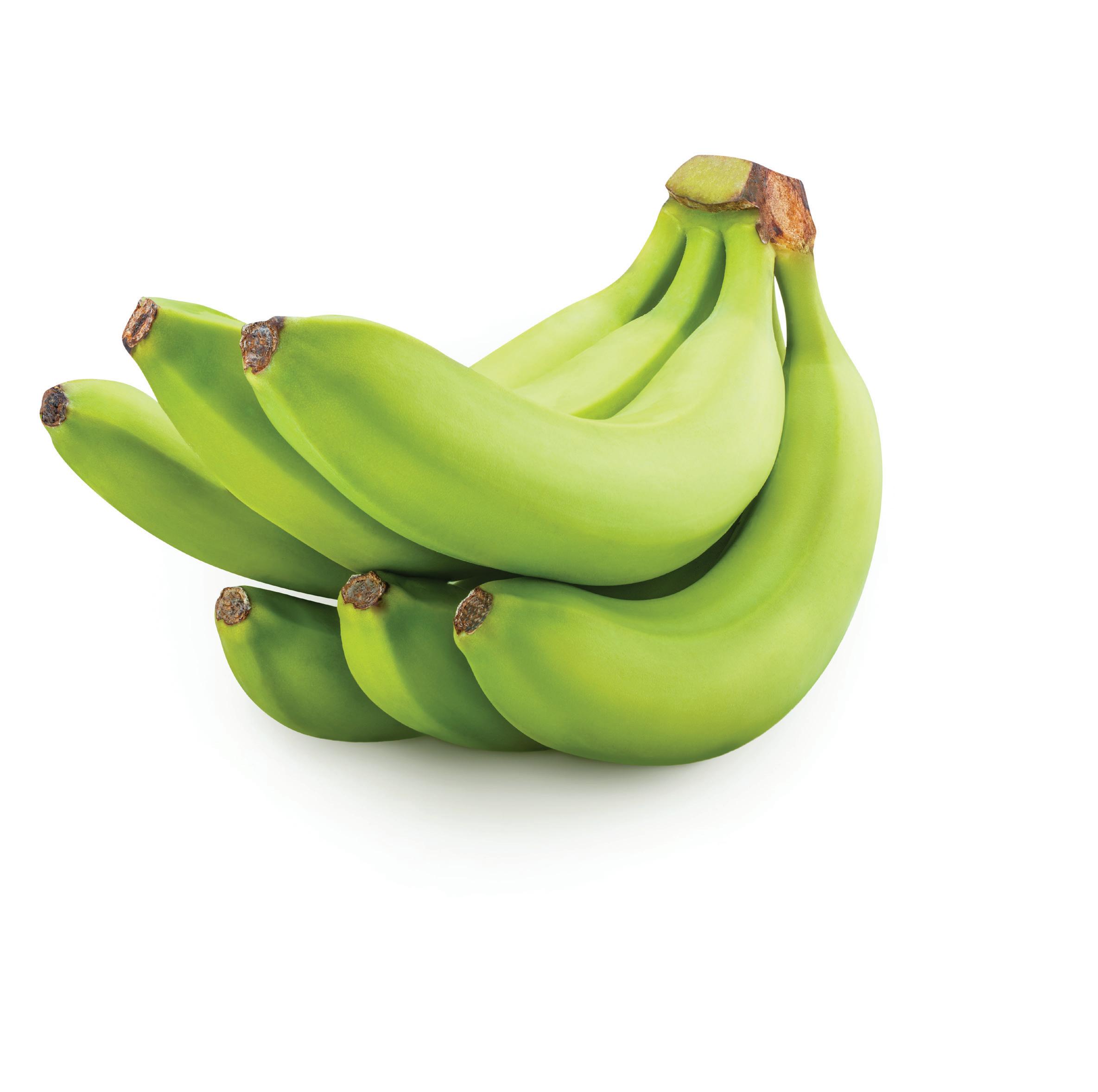
In pineapples, RyzUp enhances the overall size of the fruit. In addition, it decreases translucency, which is one of the most significant issues impacting pineapple quality in certain seasons of the year when the transition from dry to rainy season occurs or vice versa. For pineapple growers, this can mean loss of productivity, increased costs, and the necessity of selling their fruit at a lower price.
RyzUp has been an effective tool for banana and pineapple growers alike for many years. While it is another significant advancement from Valent BioSciences, the company continues to enhance the product in order to benefit both today’s growers and those in future generations.
MaxCel® Provides Supreme Benefits on Tree Fruit
CROPS
Ideal for application on apples and pears.
BENEFITS
MaxCel® is formulated with a built-in surfactant for rapid uptake under a wide range of conditions. The benefits of MaxCel include:
• Fruit thinning
• Fruit size enhancement
• Enhanced return bloom
• Increased branching of nursery stock and young trees
ACTIVE INGREDIENTS
MaxCel contains the plant growth regulator (PGR) 6-benzyladenine (6-BA), which stimulates shoot growth and bud break, as well as cell division.
How MaxCel Changed the Game
MaxCel contains 6-BA, a cytokinin that is used as a post-bloom thinning and sizing agent for apples and pears and for branching of nursery trees and young trees. 6-BA promotes cell division and fruit growth beyond just the thinning effect, resulting in enhanced fruit size at harvest. Because of its unique mode of action, MaxCel does not stress the tree or cause stunting of fruit, even with multiple years of use. MaxCel is a powerful tool used to adjust crop load, helping growers optimize their returns per acre and ensuring annual cropping, while saving them money by reducing the need for hand thinning labor.
The effect of 6-BA on fruit thinning was discovered during the early testing stages of Promalin ® , which is a combination of 6-BA plus GA4+7 used for apple fruit shape and quality. It was noted that high rates of Promalin caused a thinning response to some extent when the product was applied around bloom and petal fall. At first, it was assumed that this response was caused primarily by the gibberellins GA4+7, but soon after in the late 1970s, comparison studies clearly demonstrated that 6-BA was the primary thinning component.
Around the same time, due to the rapid adoption of new planting and training systems, 6-BA combined with GA4+7 was evaluated as an agent to stimulate lateral branch development on young apple
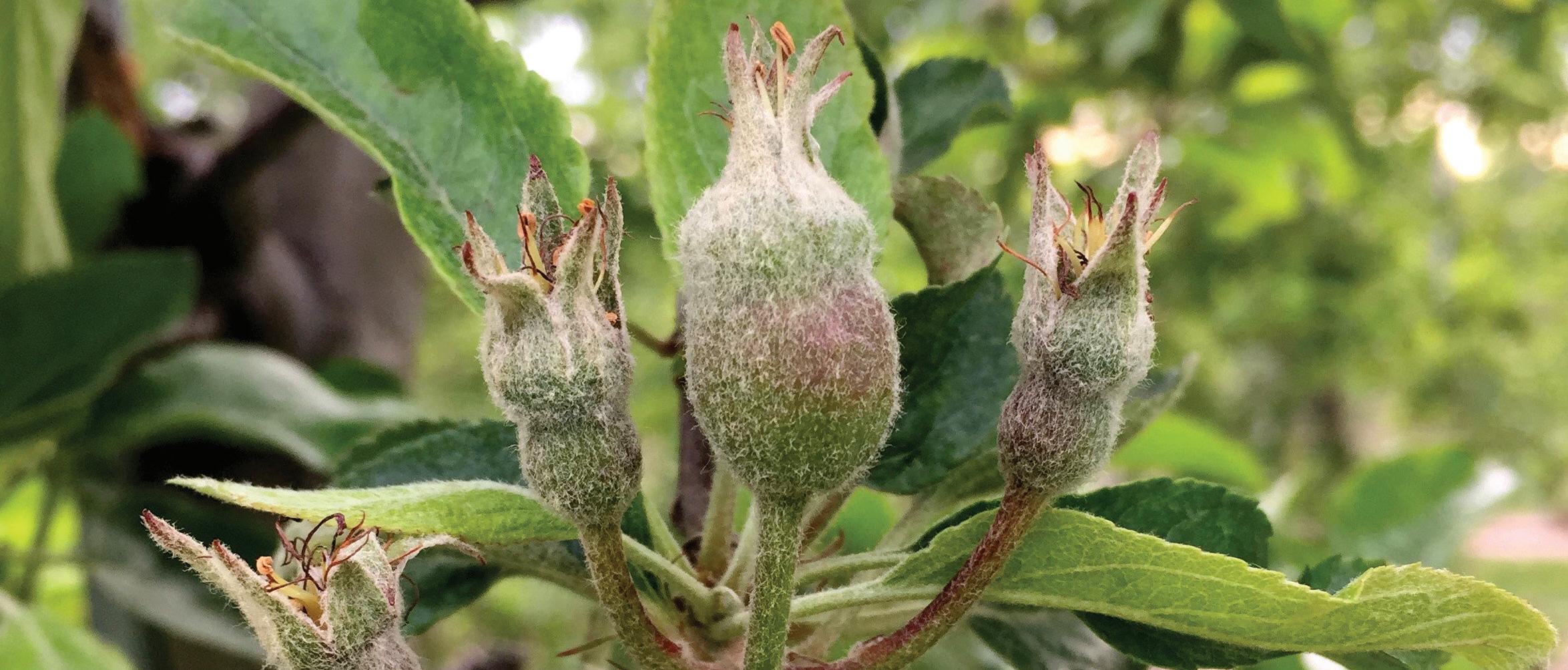
trees. It was found that the high rates of 6-BA plus GA4+7 used for branching frequently resulted in near de-fruiting of these young trees when applied late after bloom. As a result of these findings, it was concluded that 6-BA alone could potentially be used as a chemical thinner, as it causes fruit abscission, increases fruit size, and promotes return bloom.
EMERGENCE OF NEW VARIETIES
In the 1980s, new and more profitable fruit varieties were emerging at a fast pace. These new varieties presented novel thinning challenges for which existing technologies did not work. At the same time, retailers and consumers desired larger fruit, but growers were struggling to further increase fruit size with the available product options. Auspiciously, when 6-BA was used on its own, it was observed that 6-BA provided not only thinning benefits but also independent sizing benefits due to increased cell division.
All of these conditions, plus the discontinuation of the widely used blossom thinner sodium-4, 6-dinitro-ortho-cresylate in 1989, created an environment where registration of 6-BA as a post-bloom thinner was widely supported. The formulation was challenging to develop due to solubility problems, but once this game-changing formulation
was created, the first pure 6-BA product was registered in Australia as Cylex® in 1996. A few years later, the formulation was further refined and launched as MaxCel in the U.S. in 2004.
FORMULATION EXPERTISE
While others have often tried to develop a similar formulation, they have never been able to demonstrate similar efficacy, which is a testament to the formulation skill inherent in developing the original product decades ago.
MaxCel has been on the market for more than 15 years, and the formulation’s features and benefits have been well-researched to deliver maximum value to growers. Today, MaxCel is available in all the main apple-growing countries around the world, proving its success as a trusted and efficient tool for growers on a global scale.
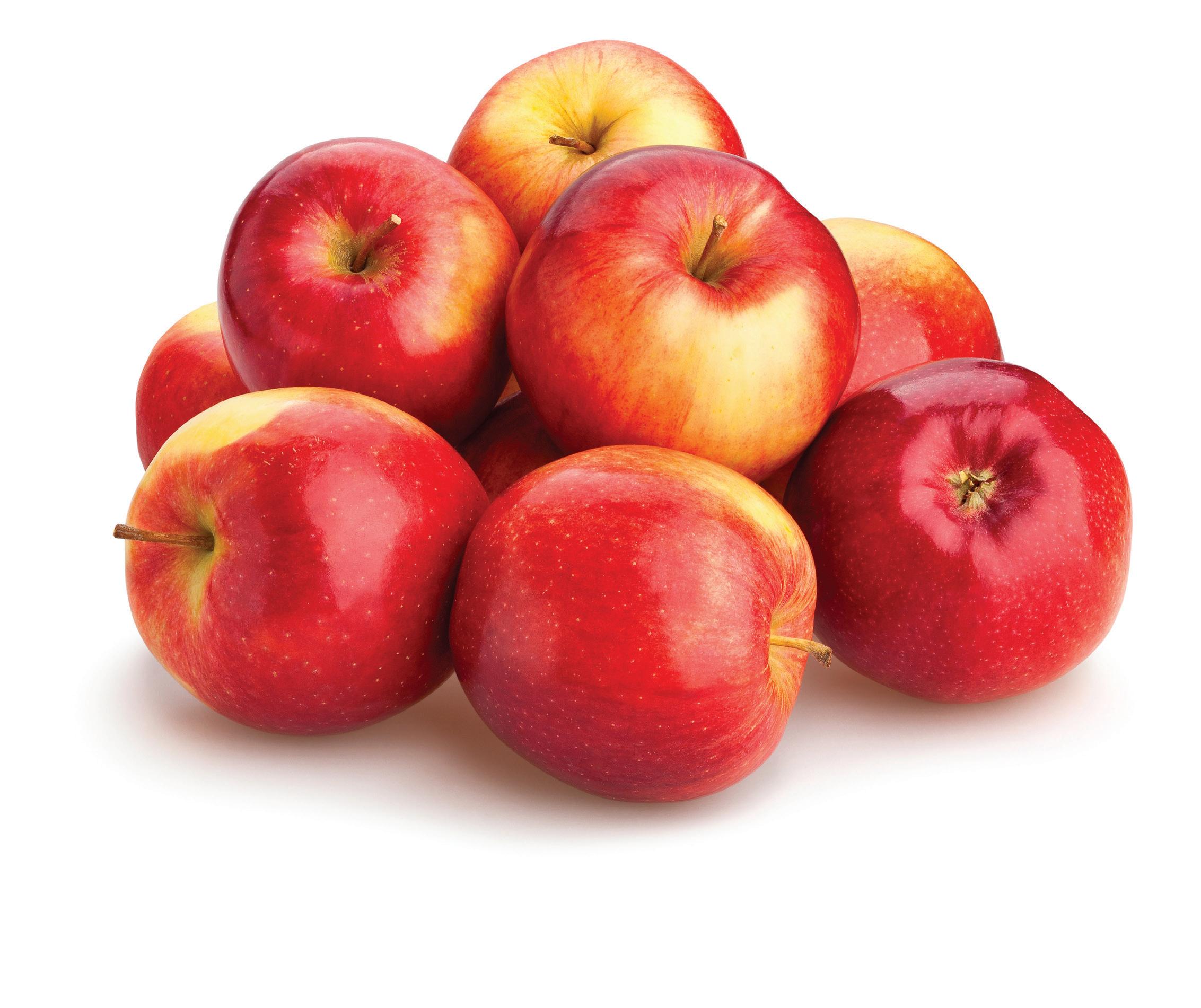
ProTone® Becomes the Colorful Choice of Growers
CROPS
Ideal for application on red table grape and wine grapes.
BENEFITS
Offered in both granular and liquid formulations and available for use in organic operations, ProTone ® and Excelero™:
• Enhance color development in red table grapes and wine grapes
ACTIVE INGREDIENTS
ProTone contains the naturally occurring plant growth regulator, S-abscisic acid (S-ABA), which controls stomatal closure, water relations, and photosynthesis.
How ProTone Changed the Game
In the 1990s, many grape-growing regions needed an innovative method for coloring grapes that met marketing requirements and consumer demands. The standard coloring tool, ethephon, had come under increasing regulatory and consumer scrutiny regarding residues.
While it had been reported in scientific literature that application of S-ABA could enhance the red coloration of table grape cultivars, there were no S-ABA products approved and available for use in agriculture given the difficulty and cost of its production. Valent BioSciences was the first to produce, register, and commercialize S-ABA, branding it ProTone (Excelero in some regions).
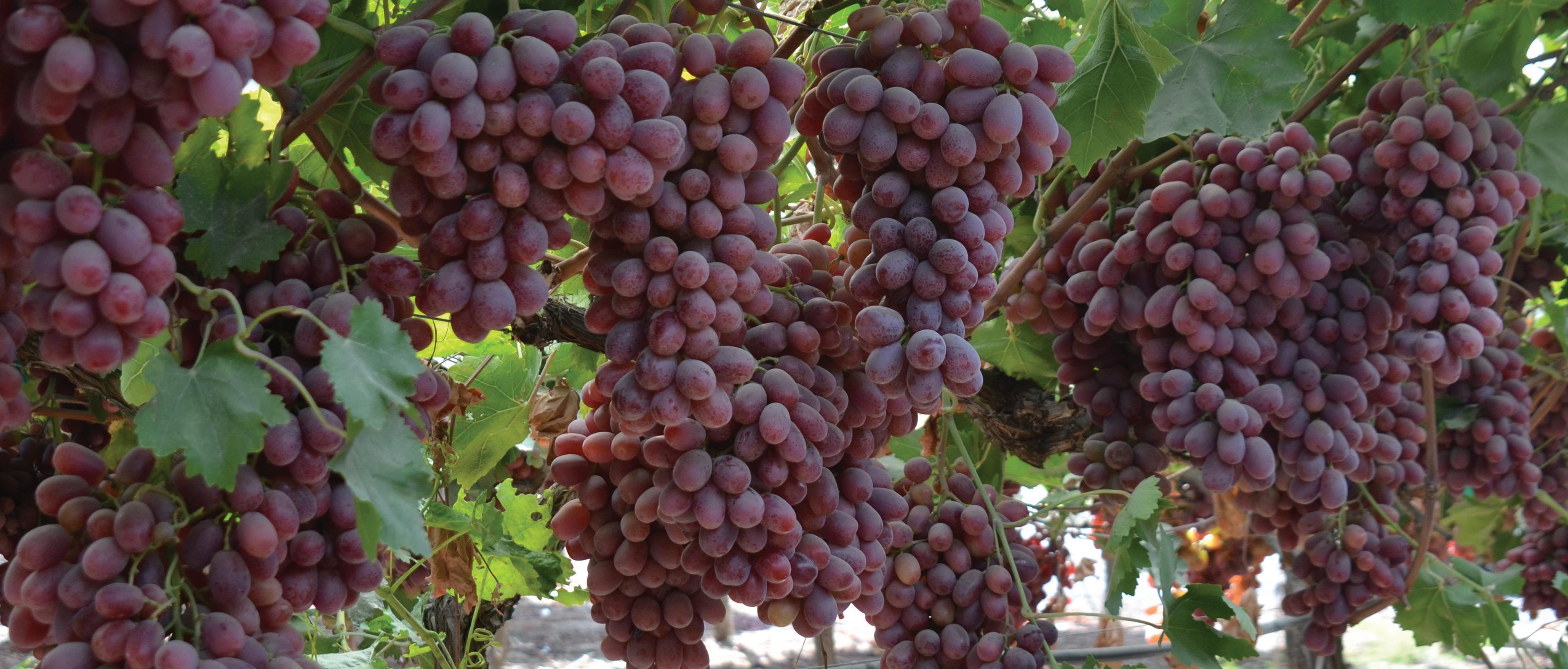
CREATING ACCESSIBILITY
Valent BioSciences and its predecessor, the Agricultural Products Division of Abbott Laboratories, first investigated the potential use of S-ABA in agriculture in the 1990s, but the supply was limited, the cost was high, and more work was required to develop consistent, efficacious use patterns.
In 2002, Valent BioSciences established collaborations to develop both cost-effective manufacturing and use patterns for S-ABA in agriculture. The company’s microbiologists, fermentation scientists, and chemists worked to develop and industrialize the production of S-ABA by fermentation. The formulations research group developed effective, user-friendly formulations that can be used in both conventional and organic markets. Development of an S-ABA production method and the ProTone formulations was groundbreaking
and allowed for S-ABA, one of the five classical PGRs, to be produced on an industrial scale for the first time.
Working with viticulture researchers around the world, Valent BioSciences developed reliable application rates and timings to promote red color development of key table grape cultivars and improve marketable yield. ProTone has a very dramatic effect on coloration of grape clusters and was game-changing for table grape growers and exporters, giving them an effective and natural option for coloring that eliminated residue concerns. Without ProTone, red table grape growers sometimes cannot harvest 20-25% of the crop due to poor coloration or may harvest at little to no profit to be used for juice. With its consistent effect in improving red color, ProTone allows more fruit to be harvested and marketed as high-quality table grapes.
With the launch of the new product came the need for user education when it was clear that ProTone only colors where the fruit is sprayed. Valent BioSciences conducted technical training with growers to ensure the most effective use of the product, informing growers of the importance of the directed spray application to the fruiting zone to achieve full coverage of entire grape bunches, as well as appropriate table grape viticulture practices such as vine training, fruit load, and
canopy management to promote proper coverage and efficacy. Because of Valent BioSciences’ technical experience, expertise, and reputation in the industry, growers trusted the potential of ProTone and worked together to make it an important tool in the table grape industry.
The first countries to register ProTone were Chile, the U.S., and Australia. Since then, ProTone has been registered in additional important table-grape-producing countries around the world, and new uses have been developed. There are still countless opportunities to develop additional uses for ProTone and S-ABA to provide solutions to unmet grower needs, and Valent BioSciences is committed to bringing these sustainable solutions to the marketplace.
Since the launch of ProTone on table grapes, Valent BioSciences has continued to develop new uses for S-ABA.
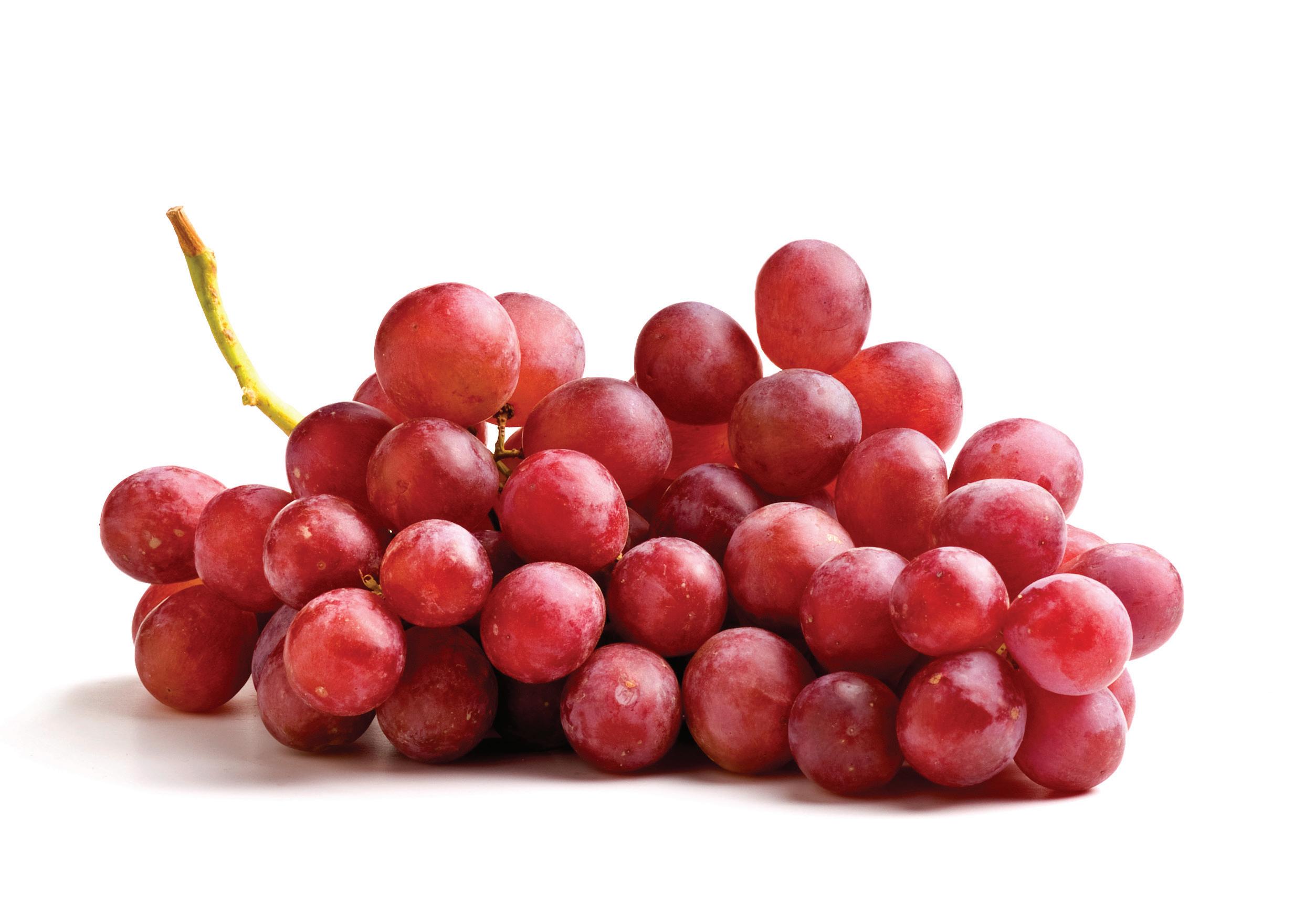
PinCor® Promotes Pineapple Production
CROPS
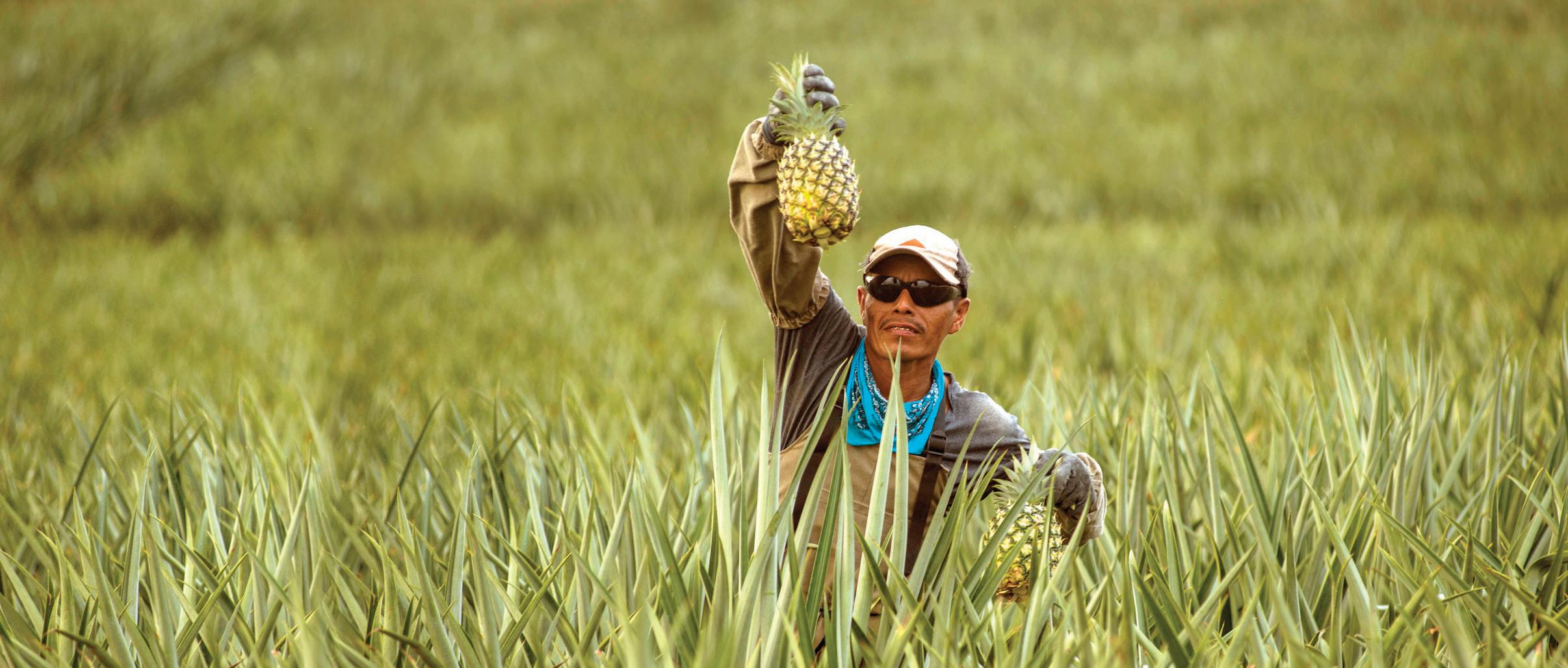
Ideal for application on pineapples.
BENEFITS
Offered in a liquid formulation, PinCor®:
• Controls naturally differentiated flowering (NDF) in pineapples
ACTIVE INGREDIENTS
PinCor contains the naturally occurring compound aminoethoxyvinylglycine (AVG), which inhibits the biosynthesis of ethylene in plant tissues. In pineapple, ethylene plays an important role for flower induction.
How PinCor Changed the Game
Unlike most crops, commercial production of pineapples requires artificial synchronization of flowering through application of ethylene, a gaseous plant hormone. This synchronization allows pineapple farms to set fruit availability year-round.
However, during certain parts of the year, climatic conditions such as shorter days or cool temperatures can trigger ethylene production in pineapple plants, inducing natural and premature flowering.
Random flowering from NDF causes unsynchronized fruit development within a field, which in turn leads to inconsistent and unpredictable harvests, as well as pest control problems. For pineapple growers, this can mean disrupted harvest plans, increased costs, and the necessity of selling their fruit during the year’s lowest price season. Many growers refer to NDF as the single most important pineapple crop problem.
MAKING A MAJOR DISCOVERY
In 1982, researchers found that application of the potent ethylene biosynthesis inhibitor aminoethoxyvinylglycine (AVG) blocked flowering of certain ornamentals. At that time, it appeared that a single
application of AVG did not prevent flowering in pineapple. However, when the Agricultural Products Division of Abbott Laboratories (now Valent BioSciences) launched AVG commercially, researchers expanded their studies to include higher usage rates. The turning point for pineapples came when it was discovered that multiple applications of AVG could control pineapple flowering and thus prevent NDF. In 2011, after more than 10 years of extensive field testing AVG, Valent BioSciences launched PinCor.
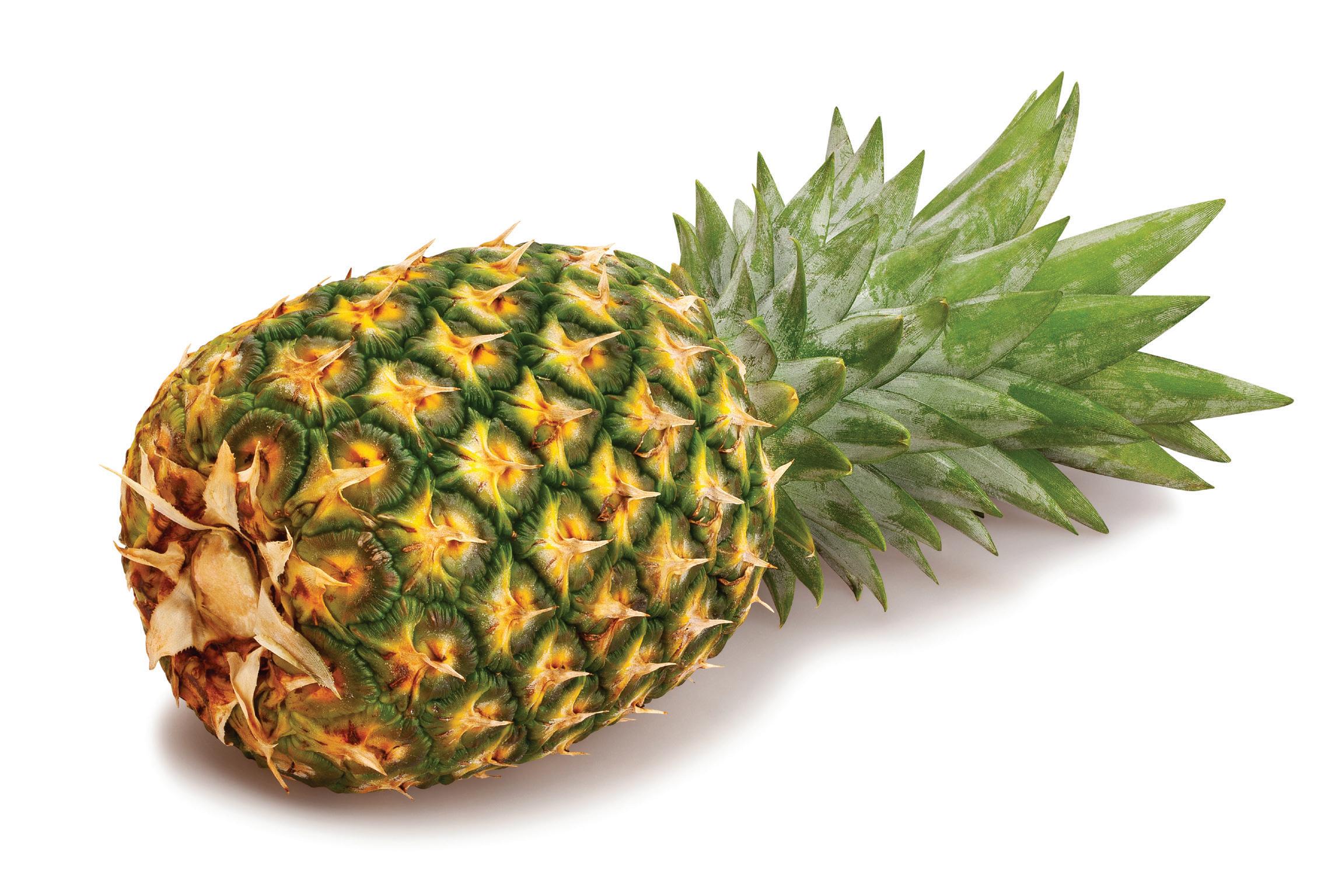
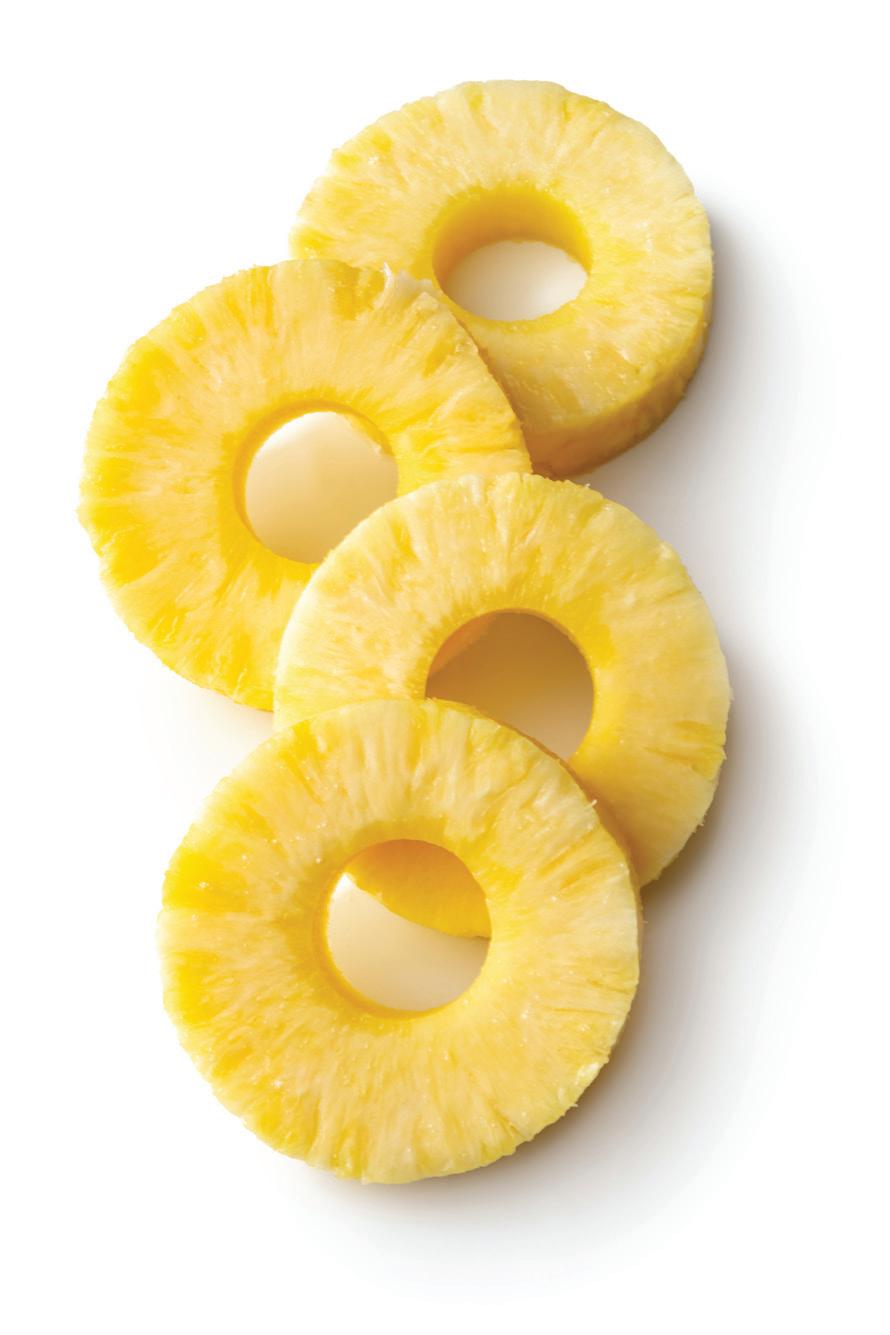
HIGHLY EFFECTIVE TOOL
PinCor prevents flowering caused by stress, giving growers more control over and synchronizing flowering, fruiting, and ultimately, harvest. PinCor simplifies farming operations during the NDF season, allowing yearround production of consistent fruit quality and quantities at a steady price. Today’s pineapple growers have a highly effective tool in PinCor for minimizing NDF’s impact at the farm level. Its application has been a boon to pineapple growers and another game-changing innovation from Valent BioSciences.
InGrain™ Enhances Food Security by Increasing Rice Yields
CROPS
Ideal for application on rice.
BENEFITS
Available in both a granular and liquid formulation, InGrain™:
• Increases yield by enhancing the grainfilling rate, especially in inferior grains within a panicle
• Improves milling quality, increasing milling yield due to better milled rice recovery and head rice yield
ACTIVE INGREDIENTS
InGrain contains the naturally occurring plant growth regulator S-abscisic acid (S-ABA), which is responsible for controlling many processes in plants, including seed dormancy and germination, water use, and red pigment formation in fruits such as grapes and strawberries.
How InGrain Changed the Game
Rice is the main source of calories for more than one-third of the global population, yet poor grain filling often limits yield and threatens food security. To resolve this unmet need, Valent BioSciences launched InGrain in 2019 to enhance rice production around the globe.
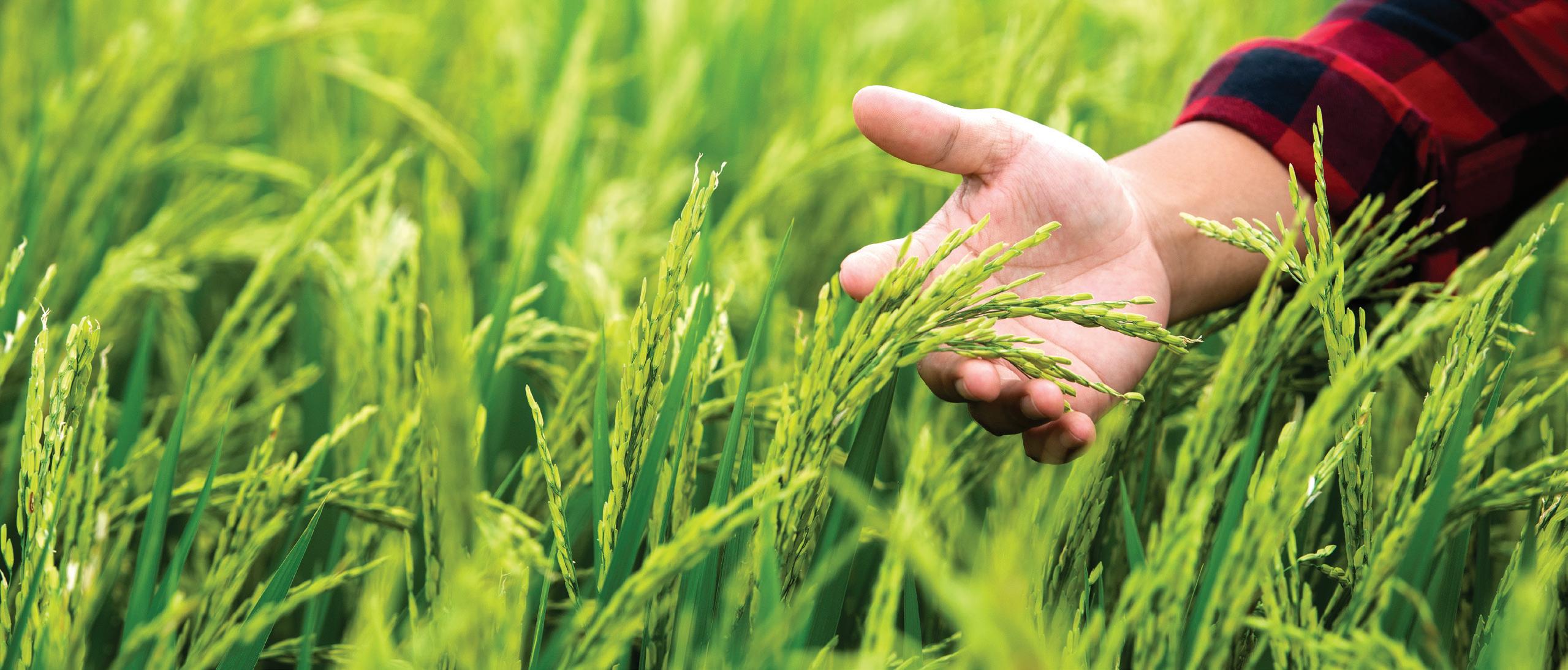
In rice, the first flowers to open within a rice panicle produce the largest grains at harvest, and flowers that open later are often sterile or slow to fill, producing smaller grains that are more likely to fracture during the milling process.
The original development of InGrain began when researchers in the early 1980s demonstrated a positive relationship between S-ABA levels and the rate of grain filling in crops such as rice, wheat, and barley. Decades of research continued, but application of S-ABA to increase yield did not become commercial practice due to the generally held belief that such a treatment would be too expensive for use in field crops.
In 2002, Valent BioSciences established collaborations to develop cost-effective manufacturing and use patterns for S-ABA in agriculture. The company’s microbiologists, fermentation scientists, and chemists
worked diligently to develop and industrialize the production of S-ABA by fermentation, and consequently developed and patented highly effective liquid and granule formulations. Once Valent BioSciences had commercialized the use of S-ABA in high-value crops such as table grapes and apples, attention turned to opportunities for this exciting plant hormone in field crops such as rice.
FROM RESEARCH TO PRACTICE
With help from a network of experienced field scientists throughout Latin America and Southeast Asia, studies began in 2016 to determine if the outcomes that had been reported in the scientific literature could be replicated on commercial rice farms. These efforts quickly yielded positive results, demonstrating that application of S-ABA during the early grain-filling phase consistently generated a valuable increase in yield due largely to an increase in the number of filled grains per panicle. Further investigation revealed that the increased number of filled grains per panicle was more pronounced in later-developing panicles such as those on secondary tillers.
AN UNEXPECTED BENEFIT
Not only did Valent BioSciences explore the potential for yield increase, but samples of paddy* rice were collected to determine if InGrain influenced milling quality. It was discovered that InGrain increased both the weight of milled grains and the weight of intact grains, or head rice yield, per kilogram of rough rice. The additive effects of InGrain on yield and milling quality enhance the value to both rice farmers and milling companies.
Valent BioSciences employs industry-leading teams with scientific expertise in manufacturing products at industrial scale through natural fermentation processes and a global network of experienced field researchers. With these unique capabilities and proven record of teamwork, the company was able to transform what had for decades remained a research concept into a successful commercial product that enhances profits for rice farmers and can contribute to helping achieve future global food security.
*Unmilled rice is referred to as “paddy” rice throughout Asia, whereas it is referred to as “rough” rice in the U.S.
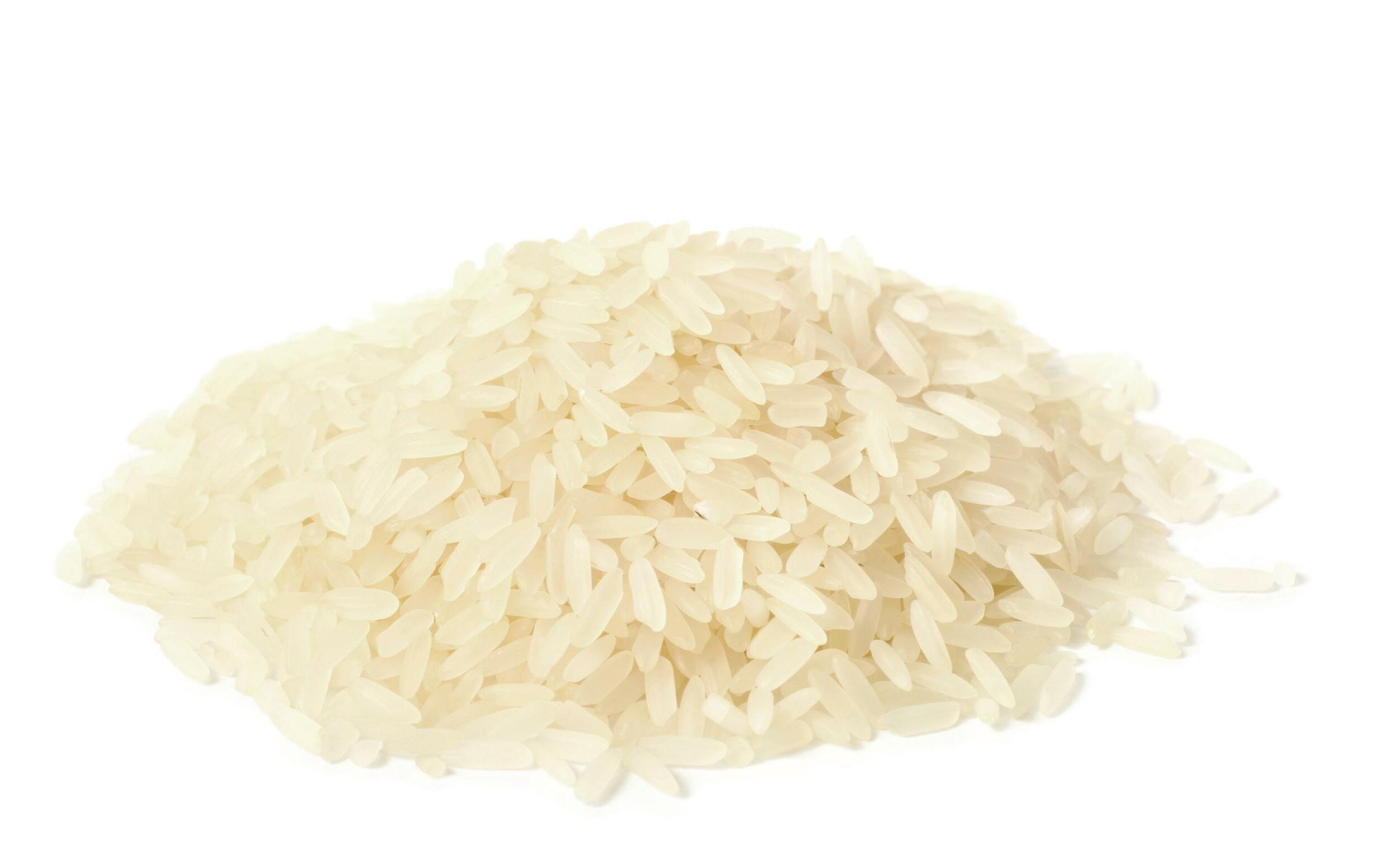
Accede® Claims New Ground for Stone Fruit and Apple Growers
CROPS
Ideal for thinning peaches, nectarines, and apples.
BENEFITS
The benefits of Accede ® include:
• Fruit thinning on stone fruit and apples
• Fruit size enhancement
ACTIVE INGREDIENTS
Accede contains the naturally occurring compound 1-aminocyclopropane-1-carboxylic acid (ACC), which is rapidly converted to ethylene using the plant’s natural biochemical pathways. Ethylene is a plant hormone with an important role in fruit ripening, as well as leaf, flower, and fruit abscission and senescence.
How Accede Changed the Game
As early as 2005, Valent BioSciences recognized that significant unmet needs remained for crop load management of stone fruit and apples.
While MaxCel® had been successfully launched as an apple thinner in the U.S., there was still a need for a product that effectively thinned apples during the late thinning window, when fruit were larger than 15 mm in diameter.
In stone fruit, many compounds had been evaluated over the years for their thinning activity, but none had achieved commercial success Stone fruit growers were reliant on increasingly expensive and scarce labor to thin crops such as peaches and nectarines by hand, so that fruit could grow to a size consumers desired.
The launch of Accede in 2021 served to meet both challenges, as Accede was the first apple thinner to provide reliable and predictable activity during the late thinning window, as well as the first product to be registered for thinning stone fruit.
MEETING THE CHALLENGE
Some apple growers have been using the synthetic ethylene releasing agent ethephon for thinning for many years, but its effects are unpredictable and may include overthinning in apples, gummosis in stone fruit, and residue problems at harvest.
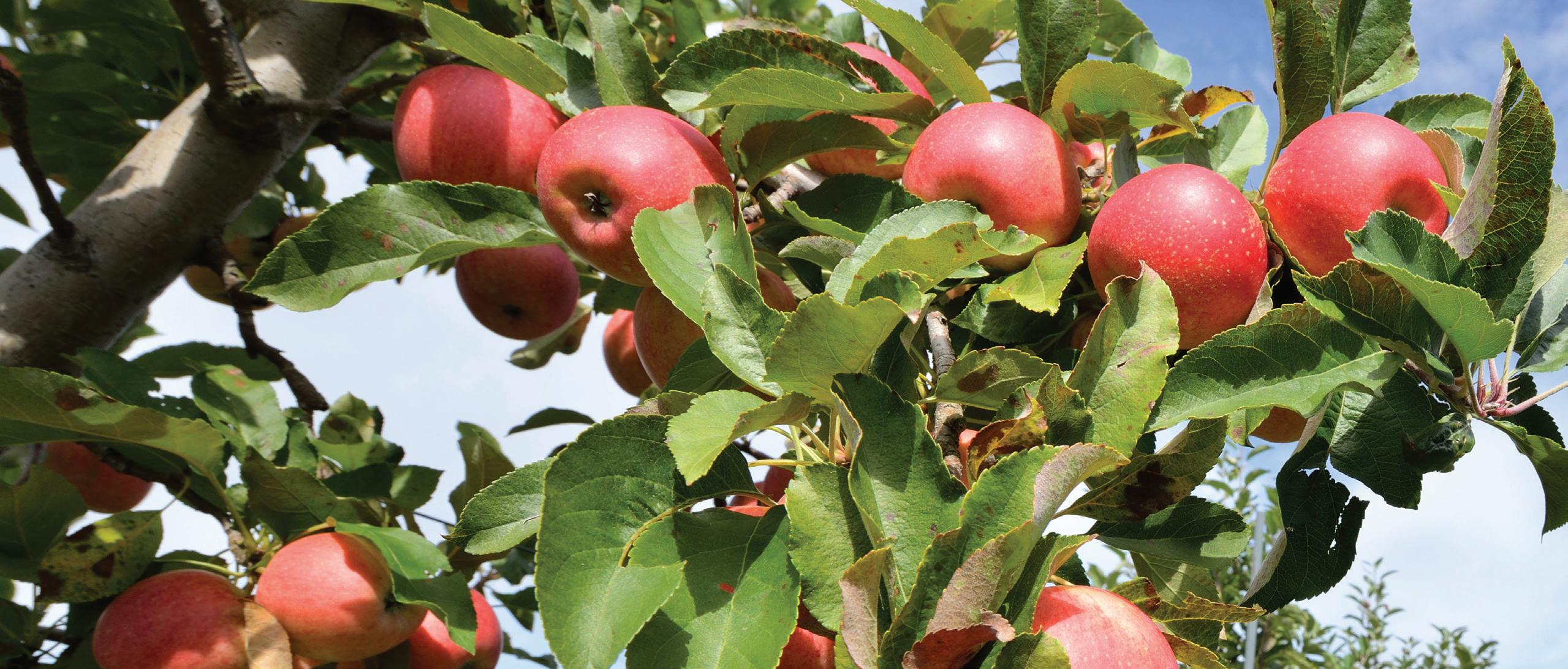
Accede
The active ingredient in Accede, ACC, was first identified as the precursor to ethylene in plants in 1979, but it was never used in commercial practice due to high manufacturing costs.
Valent BioSciences began investigating the use of ACC as a thinner in laboratory and field studies in 2005, finding that this compound has several unique advantages over ethephon. ACC is a more reliable apple thinner than ethephon under hightemperature conditions, it does not leave residues at harvest, and application to stone fruit trees does not cause gummosis. In addition, ACC was found to provide thinning activity on apples larger than 15 mm, creating an exciting new possibility for crop load management late in the thinning window.
Unfortunately, for many years, the high cost of manufacturing ACC remained a barrier to its development as a thinning product. The breakthrough arrived in 2016 when Valent BioSciences’ parent company, Sumitomo Chemical Co., Ltd., identified a cost-effective, scalable method for manufacturing ACC.
A NEW TOOL FOR STONE FRUIT GROWERS
Stone fruit growers worldwide have had to rely almost exclusively on the availability of skilled labor for hand thinning their crop to a commercially acceptable number of fruit per tree that would produce large fruit size at harvest. Hand thinning is usually
carried out weeks or even months after flowering, and waiting so long after flowering to reduce the number of fruit per tree places a limitation on the potential fruit size at harvest.
Accede can be applied to peaches and nectarines any time between the pink bud stage and petal fall. The goal of using Accede in stone fruit is to reduce, but not necessarily eliminate, the need for hand thinning. By reducing the number of fruit per tree early in the season, fruit size at harvest is often increased compared to the conventional practice of hand thinning alone.
Valent BioSciences is pleased to have launched Accede as the first stone fruit thinner and late-window apple thinner. As with all of its products, the company is eager to continue driving innovation with this new plant growth regulator and committed to seeking new uses and crops to help further serve growers and fulfill their unmet needs.
